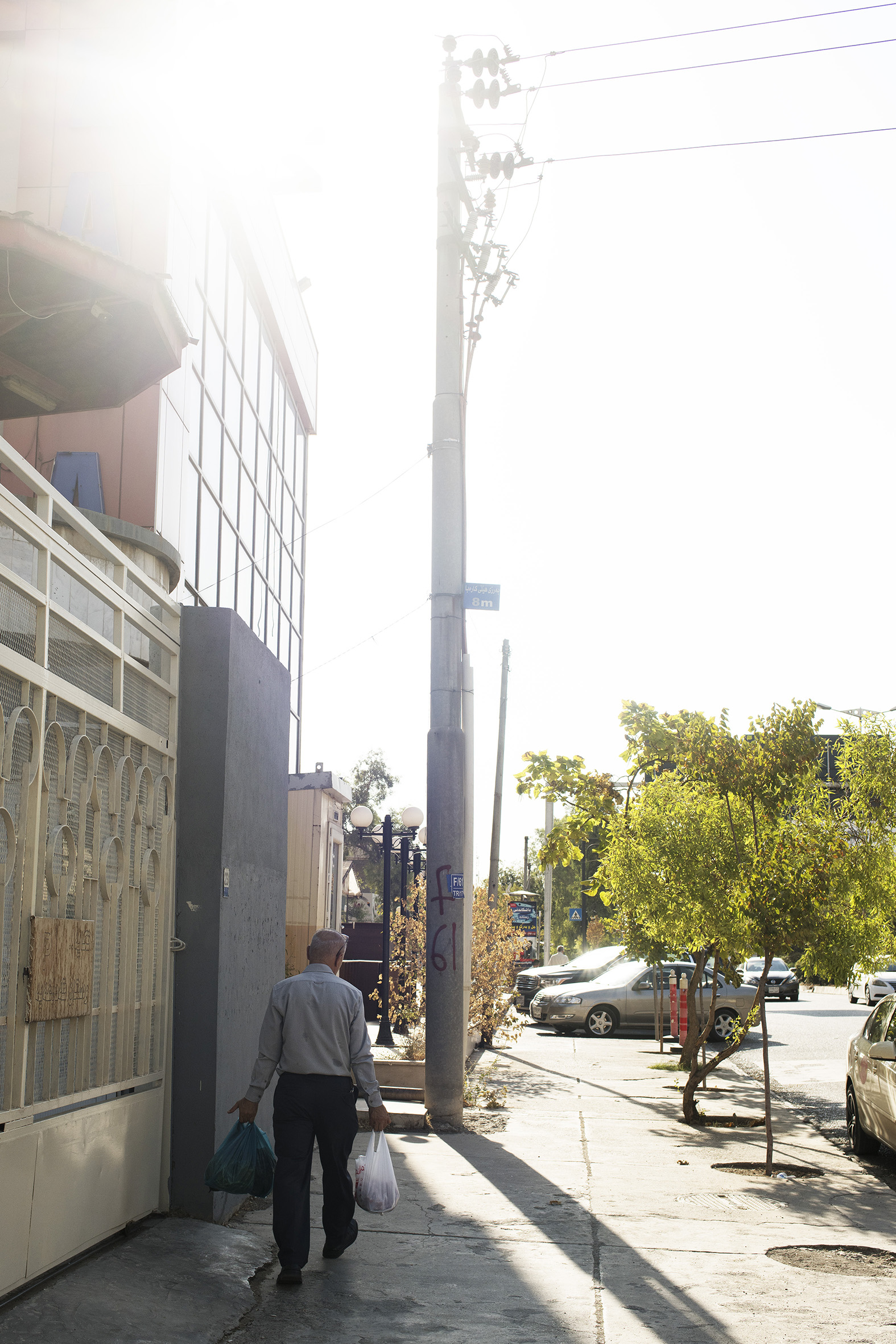-
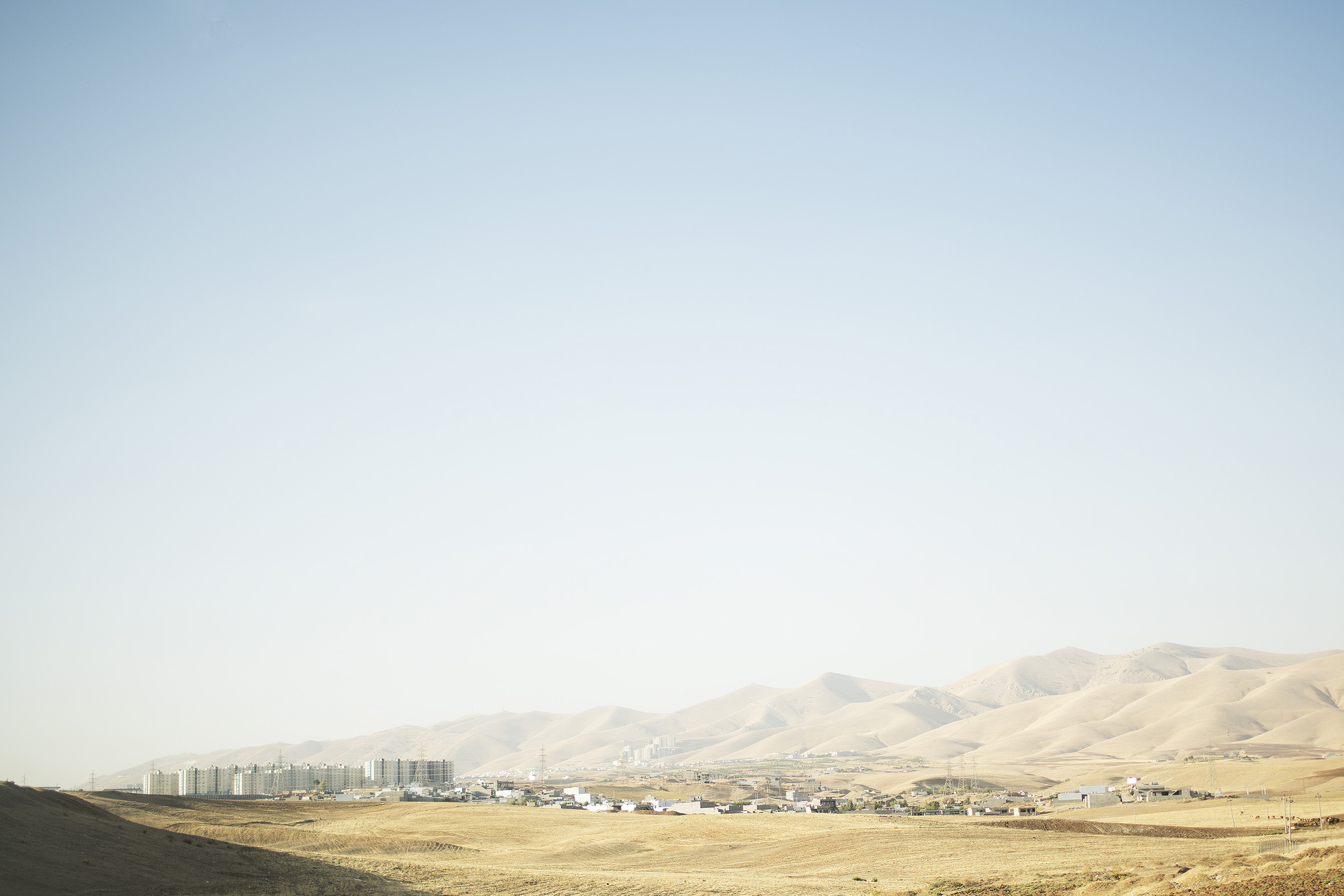
-
In the summer of 2020, I met ‘S’ in Dunkirk, in one of the refugee camps in the north of France, at the gateway to England. ‘S’ was a committed writer, involved in the politics of Iraqi Kurdistan. He explained to me the economic, political and ideological reasons that led him to leave for Europe. However, since 1992, Iraqi Kurdistan has established its own parliament, Saddam's regime has fallen, Daesh has retreated; so why do the Kurds continue to leave their country and what are they expecting to find in Europe?
Ten Kurds from Iraq with different backgrounds talk about the current political and economic situation in their country, between corruption, crises and repeated conflicts. Despite a strong cultural pride, almost all of them have thought of leaving, those that have not done so already, plan to leave everything for Europe. They are looking for stability, justice and human consideration – the European dream.
-
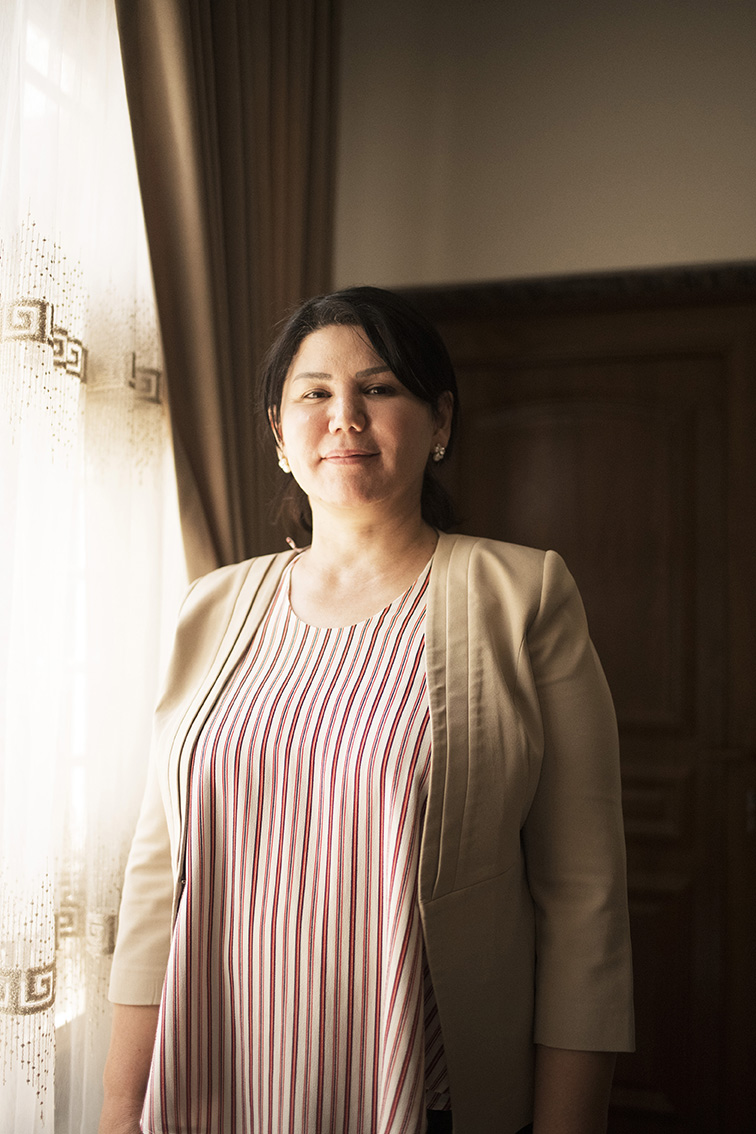
-
« My name is Gulala Sidiq, I am 43 years old and I am from Suleimani, a city of Iraqi Kurdistan. I spent all my life here. I am married but I don’t have children. I am working in a bank.
I started to work in politics in 2009 with the birth of Goran’s movement. I presented myself twice to the elections to represent my city in 2014 and 2018 but I didn’t win. The elections were rigged. When they announced the results, there were absolutely no votes for me, not even mine or any from my family! The government deleted everything. In Suleimani PUK (Patriotic Union of Kurdistan) controls everything, in Erbil it’s the PDK (Party Democratic of Kurdistan).
I think if I had the possibility to be elected, I could help people. I want to consider the humanitarian needs of people from Kurdistan, something that our government isn’t doing. This government is only working in corruption. Currently, they are not paying the salaries, the politicians are keeping the money for themselves. The people are desperate so they join political parties because it’s where the money is. When you’re a member of a party, it supports you financially. The parties are basically buying members. Anyone who isn’t is a party is left by himself, without a salary or any support.
The system doesn't allow any form of equality between the people. Some are victims, some have power. It’s not just about money, it’s about anything in life: justice, consideration, freedom… even healthcare: The different parties have hospitals just for their own members.
We all think about the European dream. We see it on the TV, on the internet, we hear stories from friends and relatives. Here we don’t have a good electrical system, the possibilities for educations are very limited, and more than anything, we don’t have laws. If someone from an important party kills someone else, he will never be arrested, he will never have any problem. There is no justice. In Europe, the law is equal for everyone.
If you have any problems with someone from a party, maybe just a car accident or anything, you can do nothing. They have the power so it is your fault (you are Powerless). No law will support you (as a victim). In 2016, I was a part of a demonstration against the government because we didn’t receive our salaries and the government burned my car.
When I was a child I grow up during the war between Iraq and Iran, after this, the two mains parties were fighting inside Kurdistan (PUK and PDK). Then in 2003, we had the fight against Saddam Hussein. It’s a constant war between Arabs and Kurds, then Kurds and Kurds. If they aren’t fighting with weapons they are fighting in the media, on the television, putting pressure on each other. Also by this way, they are putting pressure on all the people. Currently, in Suleimani - July 2021- two members of the PUK, two cousins, are fighting against each other for a divergence of ideas, because of this, no one is safe as there is no law and no justice. Anyone with the power can do anything to impose his ideas on the public. »
-
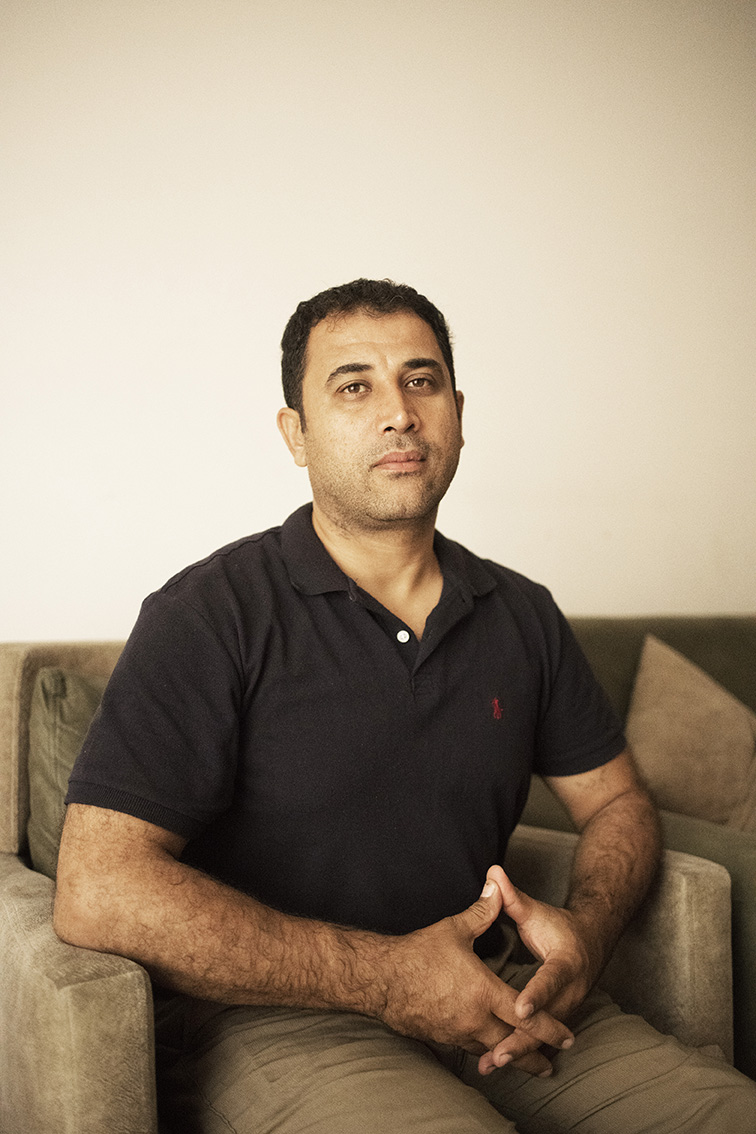
-
« My name is Goran, I am 41 years old and I am from Suleimani, in Iraqi Kurdistan. I am not married, I don’t have children. I am a truck driver.
In Kurdistan, we have no system, no government, no services for the people. It doesn’t matter which work you do, which area you are involved in, you will not be considered for any possible opportunities.
I have been living in England for 8 and a half years. I left Iraq in 1999 and I arrived here in 2000. I went first to Iran, walking across the border in the mountains, then I took trains to Italy, then France. In Calais, in the north of France, I hid in the back of a truck on a boat.
At this time, in the 1990s, it was the civil war between PDK and PUK in Kurdistan. Saddam Hussein also had power so life was very complicated: We were affected by his dictatorship and also in the middle of the fighting, at the same time.
Even if I spent 8 years of my life in the UK, the government never gave me asylum. I applied two times, I had interviews, and they refused me both times. At some point my family asked me to come back, I saw that I was stuck in this situation so I left and returned to Kurdistan.
I was young then, I was only twenty years old but now I want to try my luck again. This is not an easy journey. I am just waiting for the best time to go. In the UK, even if I didn’t have the papers, I had a life. I was working in a company constructing cars and I did this job for four years. Without even being a person in a legal situation in the country, I still had a better life than in Kurdistan. I want to settle my family in England. In Kurdistan, there is no hope for the children, no future.
Of course, the European dream isn’t the reality. My first year there was difficult. Europe was different from my expectations but in my country, people spend all their lives fighting. They fight for their freedom, they fight for their honour, they fight just to live. If there is one thing true about Europe; it’s that you can just live without these problems. In Europe, the government and the people respect your humanity.
I am just waiting for a good time to leave. I am making plans so I can be ready to start my life when I arrive in Europe. The fact is that, without a passport, you can’t do anything. I would like to find a girl I could marry in the UK, so I could live there. »
-
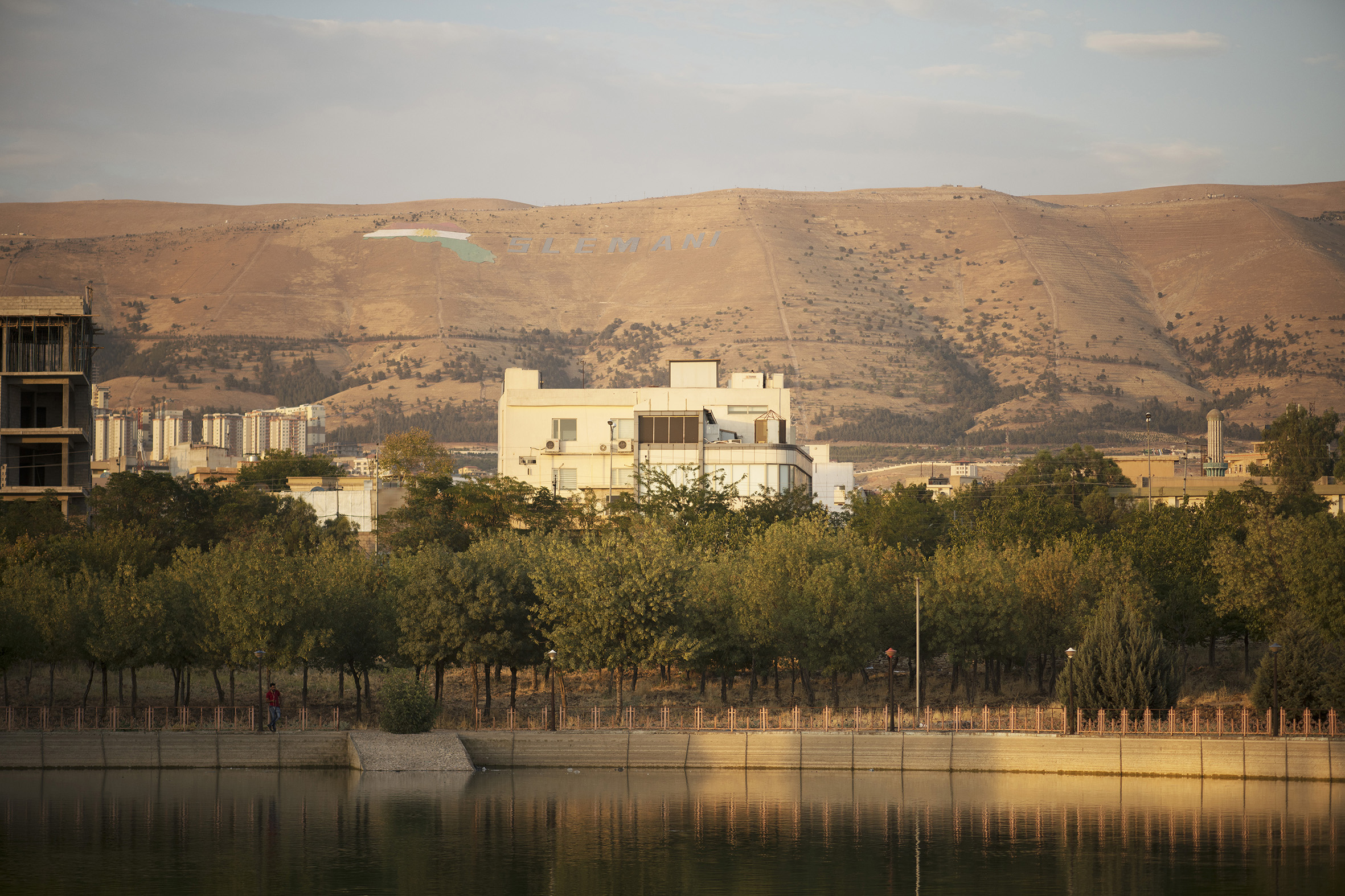
-
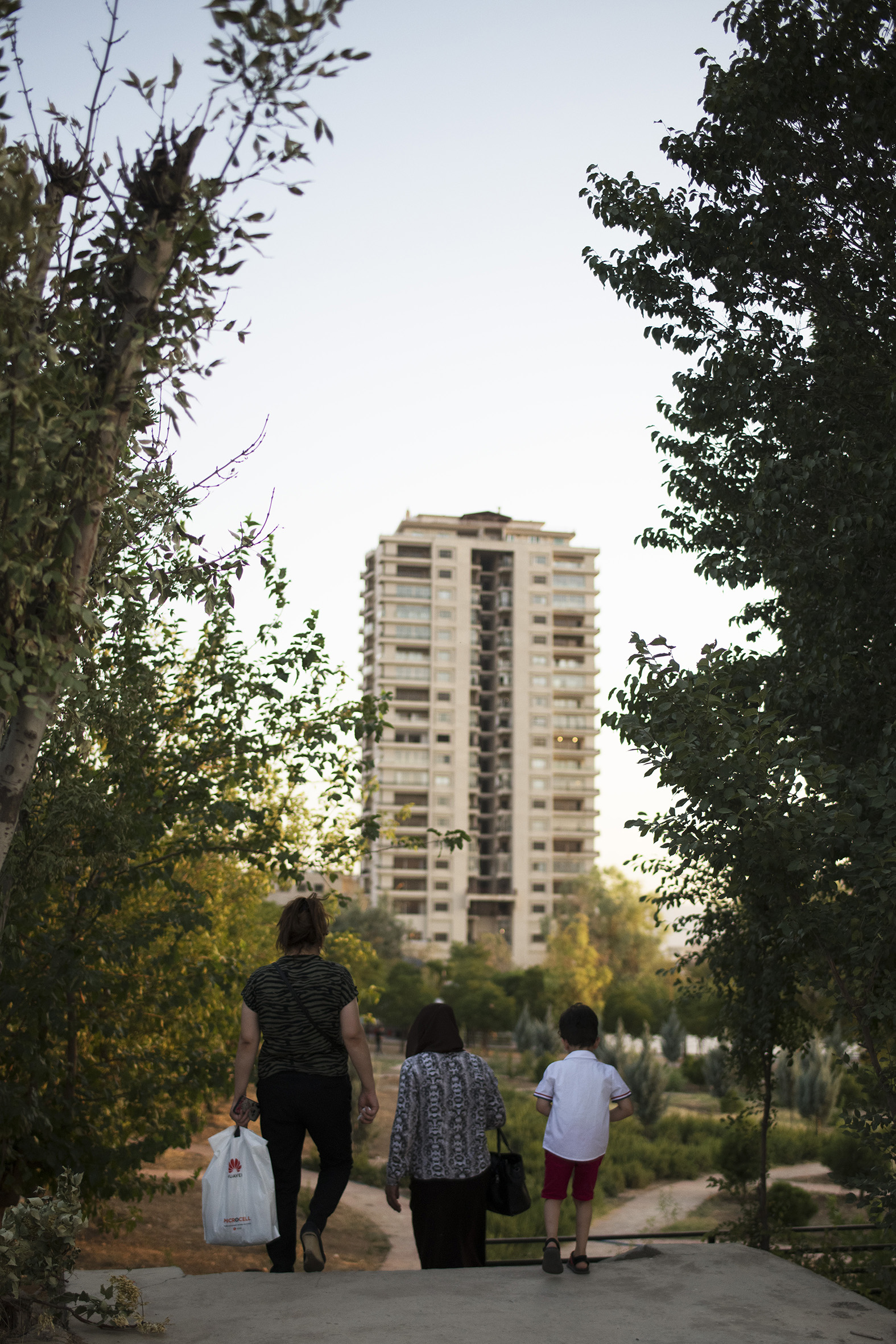
-
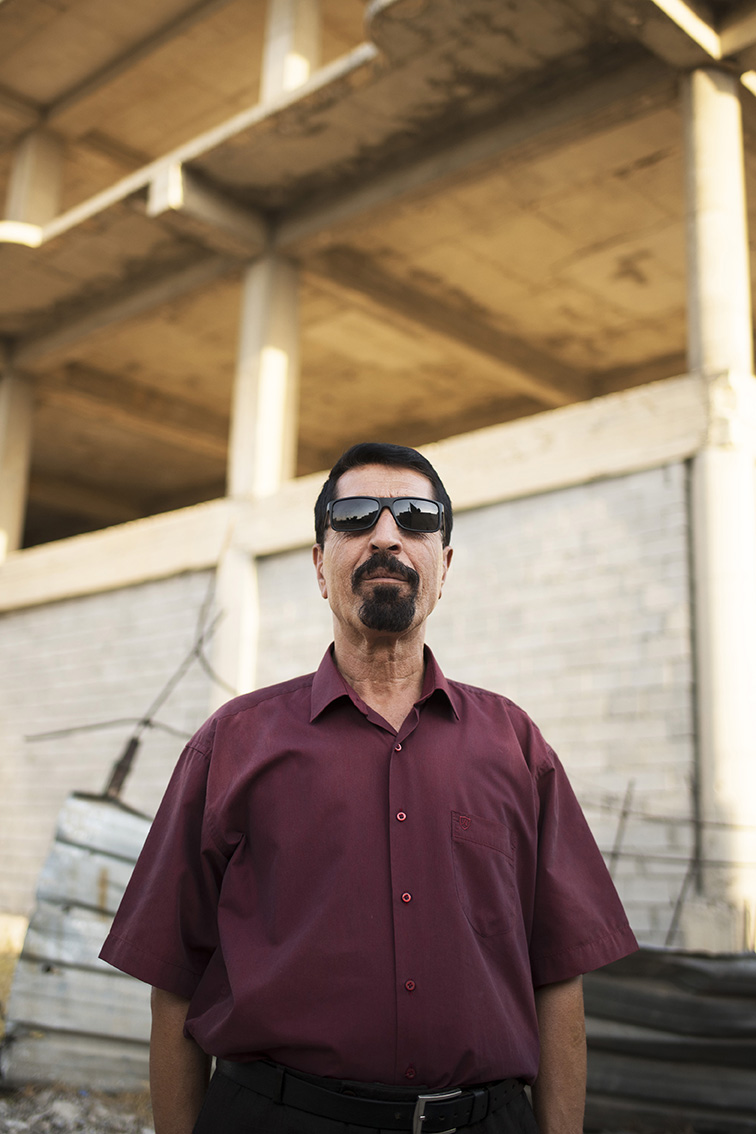
-
« My name is Bahiden Mahmod and I am 64 years old. I am a painter and an art teacher. I am married and I have 5 children. I am from Suleimani, in Iraqi Kurdistan. I have always lived here.
My wife and my children are living in Germany. I have never been there but I am waiting to join them. They left four years ago. They crossed the border with Turkey illegally, then they crossed the sea to Italy on a plastic boat. They spent five days in the sea. I was worrying so much about them but I had to stay here and make money that would pay the smugglers who would take them to Europe. It took some time for them to reach Germany and settle down, so I stayed in Kurdistan, working to earn the money I send. I didn’t see them for four years, when they left my younger child was 12. My wife finally got the papers for two of my daughters, so now they are starting administrative procedures so I can join them.
I like everything in my country, I love to live here. Before 2014, I had a good situation, a good salary and I could support my family but after a time, the economic situation got very bad and the Kurdish government reduced the salaries. My salary became much lower and we couldn’t have a decent life here anymore. We sold our house and we decided that my wife should go with our children.
I think I have many abilities that I could develop much more in Europe, we hear about the « European dream » where everything looks possible. In Kurdistan even a normal life for your family is impossible because even you’re working, sometimes you are not being paid.
The government isn’t good. I am glad we gained independence but during Saddam’s time we had laws, nowadays there is no justice, nothing’s controlled, nothing’s fair.
My wife and I used to be involved in politics. For 12 years, we have been members of the Democratic Solution of Kurdistan Party which is a branch of the PKK (The Kurdistan Workers' Party). We were doing many public activities to promote democracy and the freedom of Kurdistan. I was a part of the leadership board, fighting for our rights since the beginning when we established this party in 1991.
One of our fights was about the situation of women. We saw many improvements for women’s freedom. Before they weren’t considered as equals of men but things improved and women obtained many rights. We had many hopes and some people are continuing our work but when your country is without justice, with a government who doesn’t care about the needs and the voices of the people, the situation cannot improve. » -
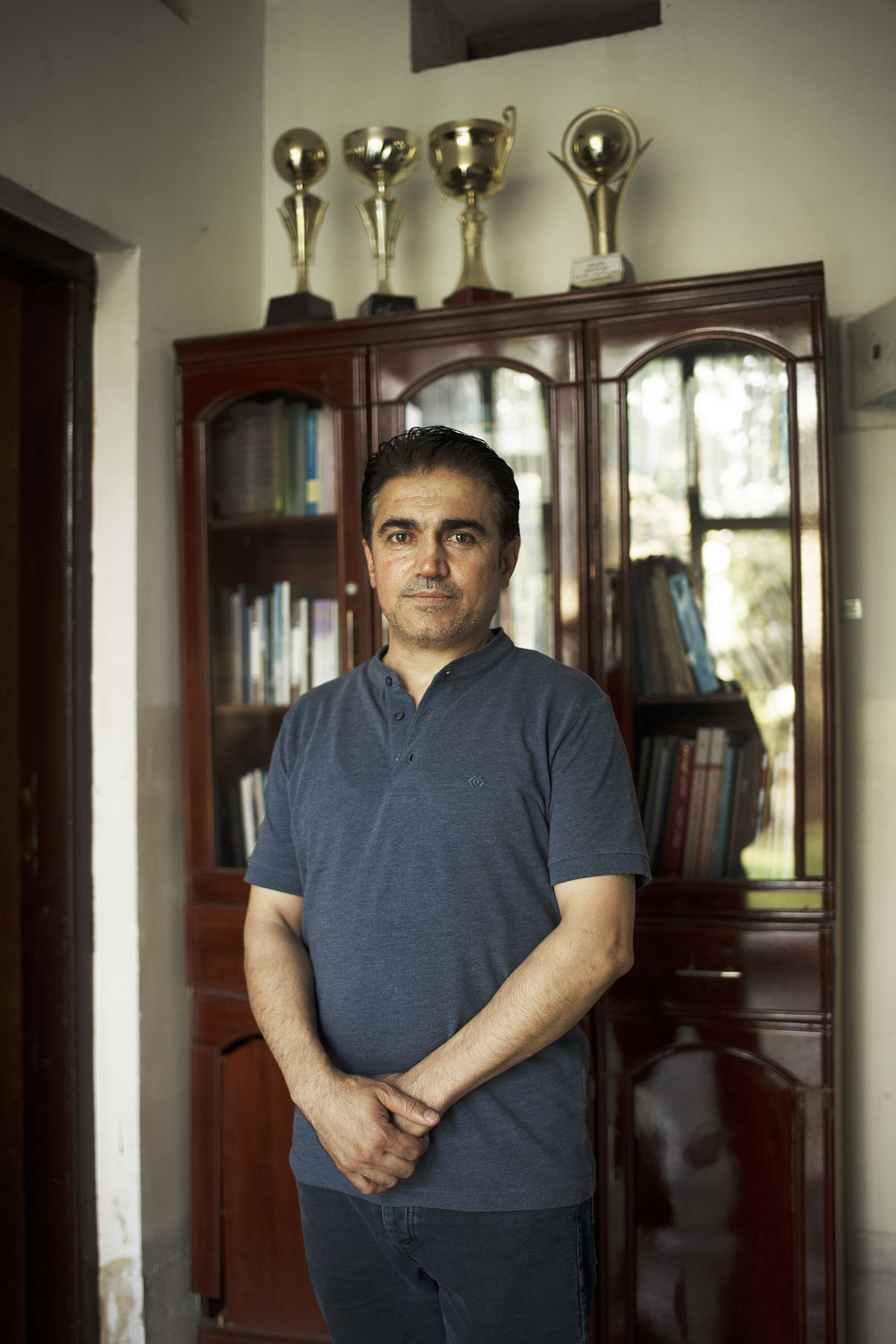
-
« My name is Arslan Abed, I am 44 years old and I live in Halabja. I am married and I have two children. I am a teacher and have been a civil rights activist for more than twenty years. I am the director of the centre for the development of youth activity in Halabja.
Halabja has an old history, first, the family of Osman king of Jaff was managing administrative work. Then Adilakhan Ahmad Mukhtar Jaff became the mayor of the city. After this, the city was under the influence of the British government, then under the control of the Iraqi government. In 1988, Halabja was chemically attacked and nearly 5,000 people from the city were killed during the war between Iraq and Iran.
Many people had to leave the city, some were refugees in Iran or Suleimani, a bigger city an hour away. I left for Iran with my family. By 1991, people started to return.
In 1992, Iraqi Kurdistan legally became a different region and elected a separate parliament.
We had big hopes at this time because we had been through so many difficult situations. Currently, the water and electricity systems are very bad. The food services that were created to help families have been cut off and you’re never sure you will have your salary paid.
I thought sometimes about leaving, hoping (materially?) life would be easier, but I still wear on my shoulders the weight of a population, who have been discriminated against. I would never leave my culture or my land behind for somewhere else.
This is what I think now. Back when I finished university I tried to leave for Iran and after the first time, I was returned to Turkey. I tried to leave another time and they sent me back here, so eventually, I chose to stay.
As a teacher I am very attached to the education system and the notion of freedom, I guess, the feeling of freedom was even the main interest of my life: to be free to think, be free to be who you are, be free to go where you want. Eventually, I had to forget this as I lost all hope. » -
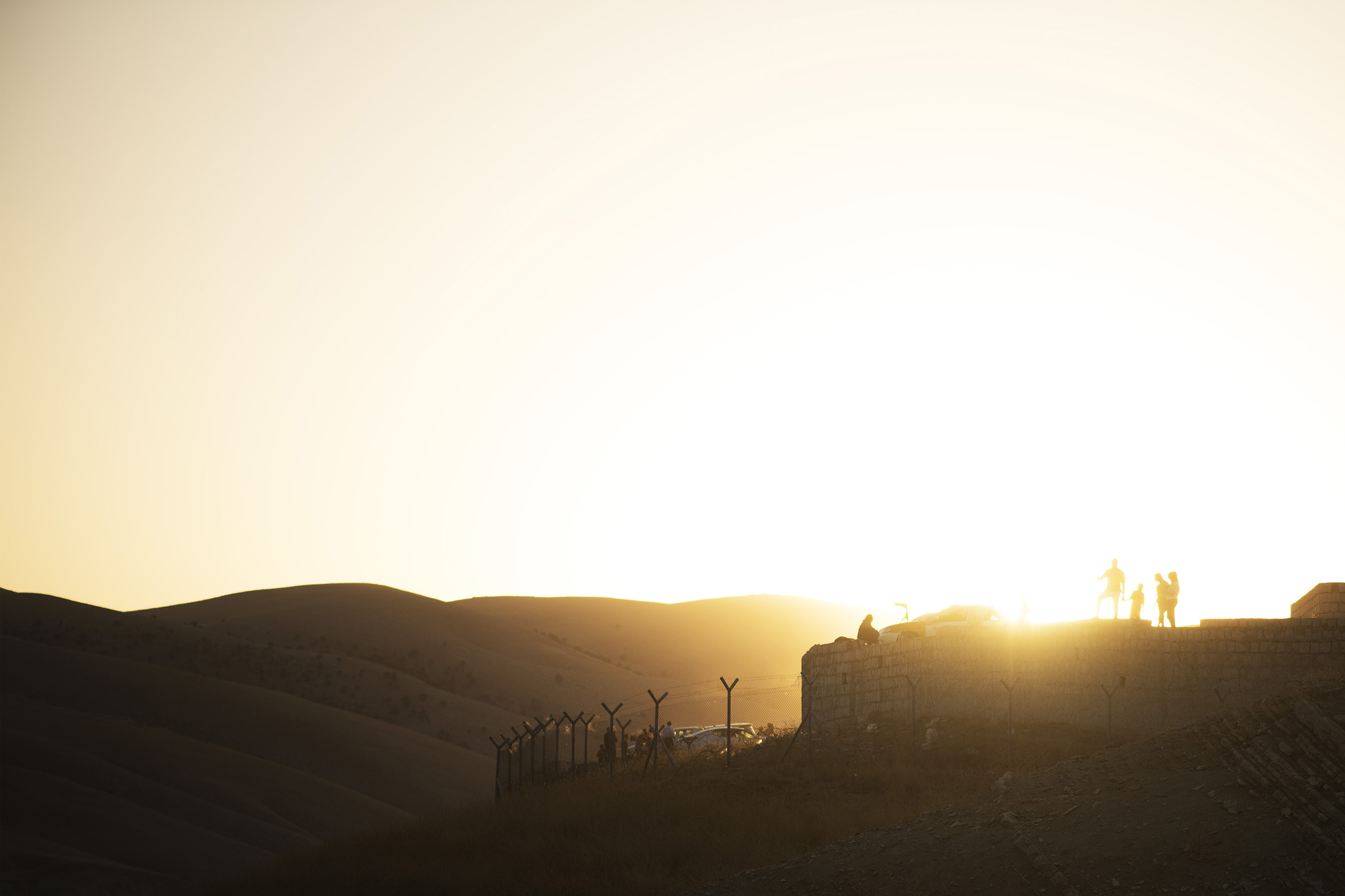
-
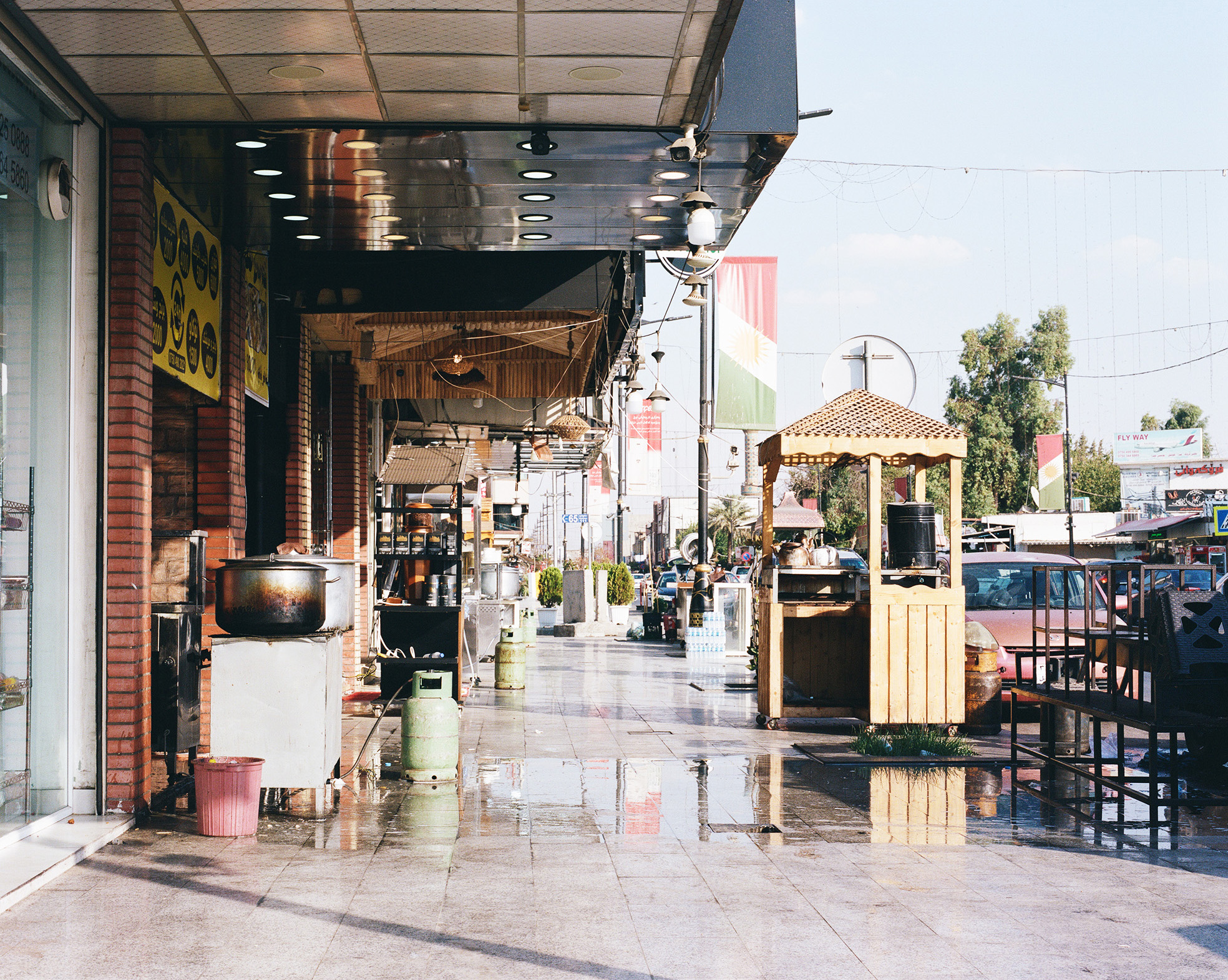
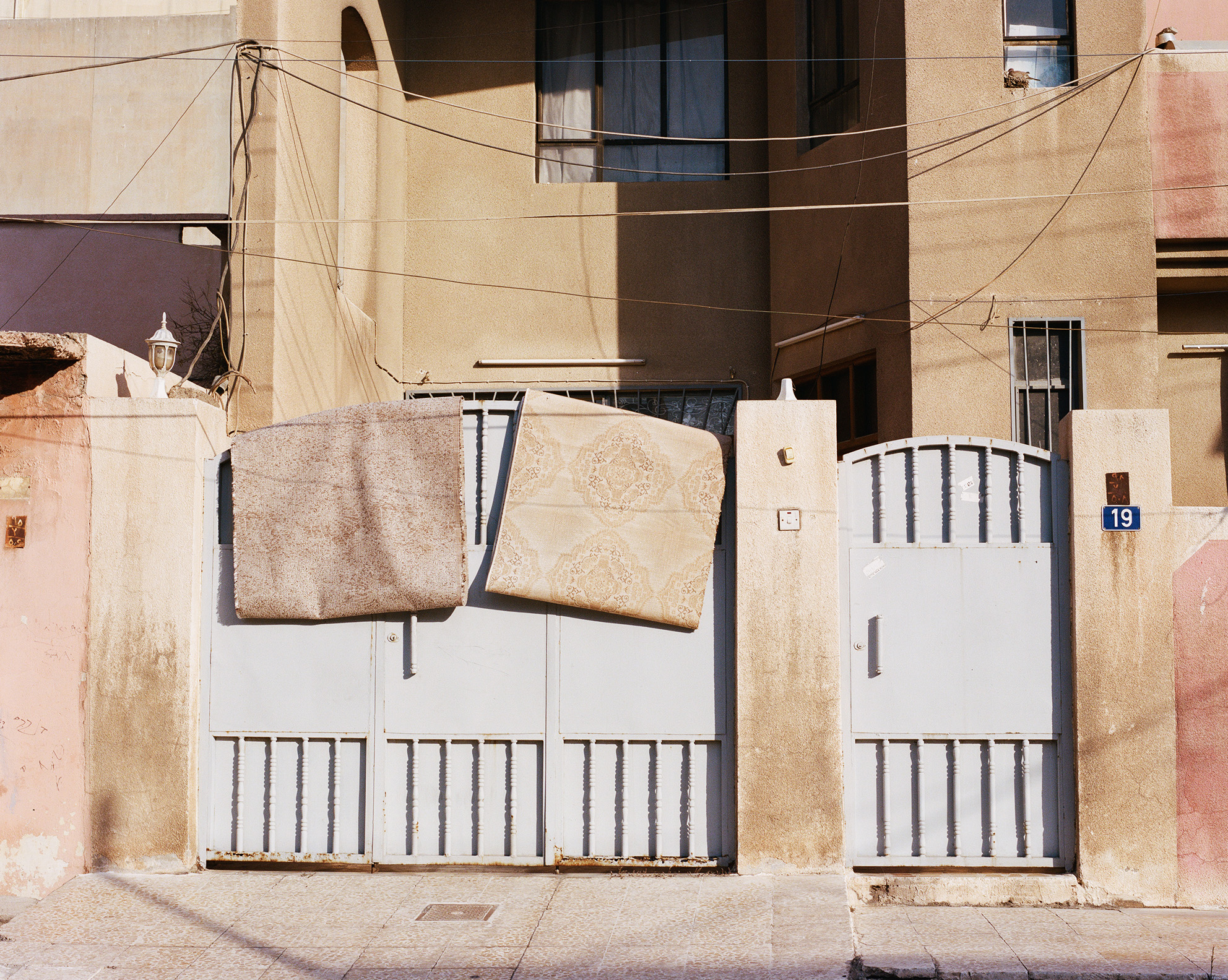
-
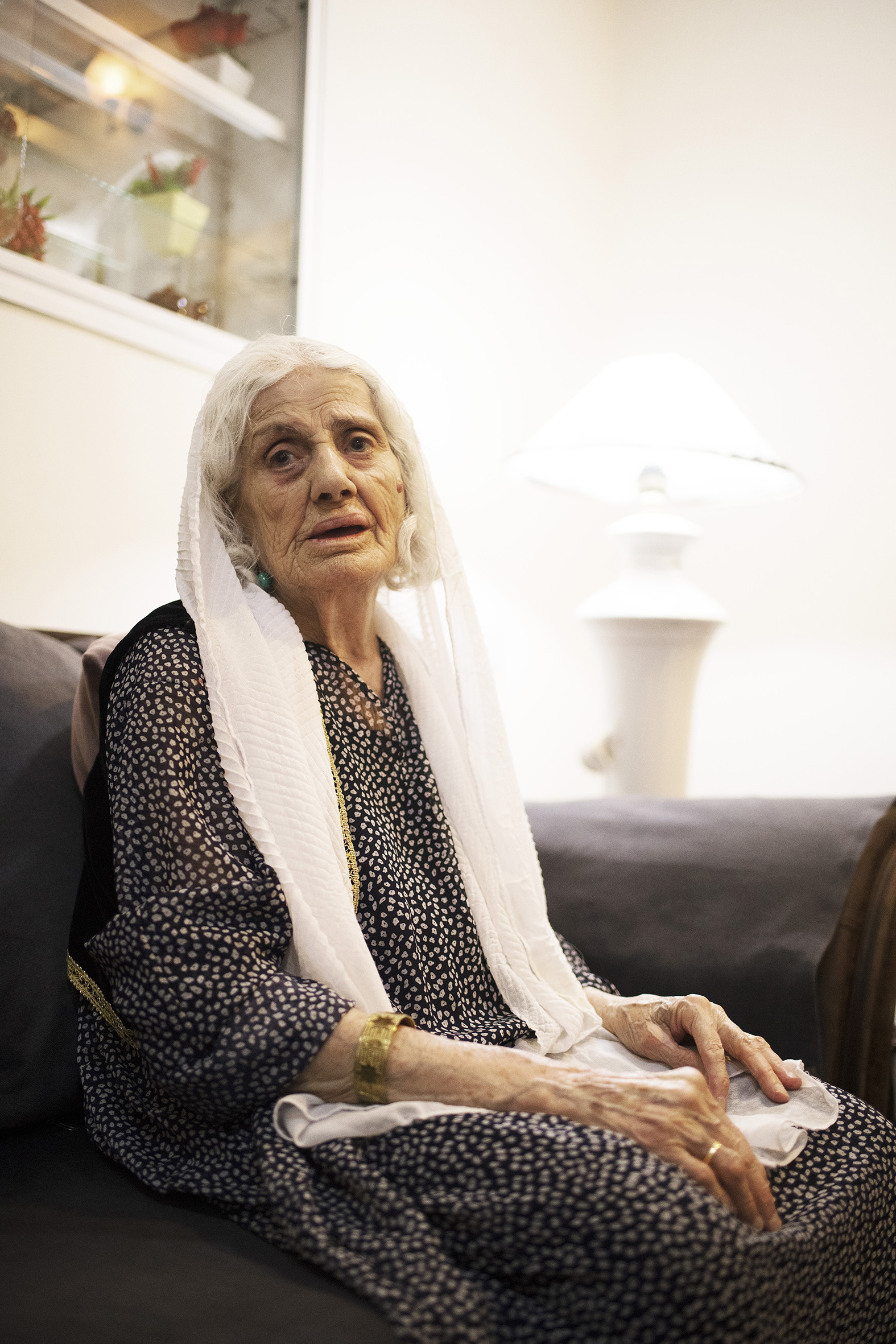
-
« My name is Bahia Ali Kanaan. I am 88 years old, but on my official papers, I am a bit more. When I was 13 my parents changed my age so I could get married, but I was born in 1932. I have been married for 45 years with 13 children but now only 9 of them are still alive. All my life I stayed at home, taking care of my children. I was born in Iraqi Kurdistan, in an old neighbourhood of Suleimani. I lived in three different districts of the city during my lifetime.
Many different changes happened in Suleimani and Kurdistan, but you know, even if it happens in your own country, you never remember the important events, except if you’re directly concerned. I remember the Iraqi revolution of 1957 because I lost two sons in the fights when our city was attacked. Our house had been destroyed at this time. I remember the year 1974, it was the time of the Kurdish revolution. to make a revolution. My brother was a soldier and I was worried for him. Many of my relatives died during these various political events.
Now, I am old and I feel very lonely. Some of my children left for Sweden, some others to the UK. They managed to gain nationality so they settled and built a life with their families there. Sometimes they come to visit me but most of the time we are just talking on the phone. I miss the times when we were all together.
I understand why they didn’t want to build their futures here. The political and economical systems in Iraqi Kurdistan are terrible. The government is never giving salaries on time, sometimes it takes three or four months to get your salary paid.
Here we don’t have debit cards and the government doesn’t send money to your bank account. You have to go to the building where you work and queue with everyone for a long time. When it’s your turn you sign and you get your salary in cash. It’s especially complicated for retired people. This way isn’t good for the people who have no guarantees and have to wait a long time for their money. When you have children it’s very complicated. » -
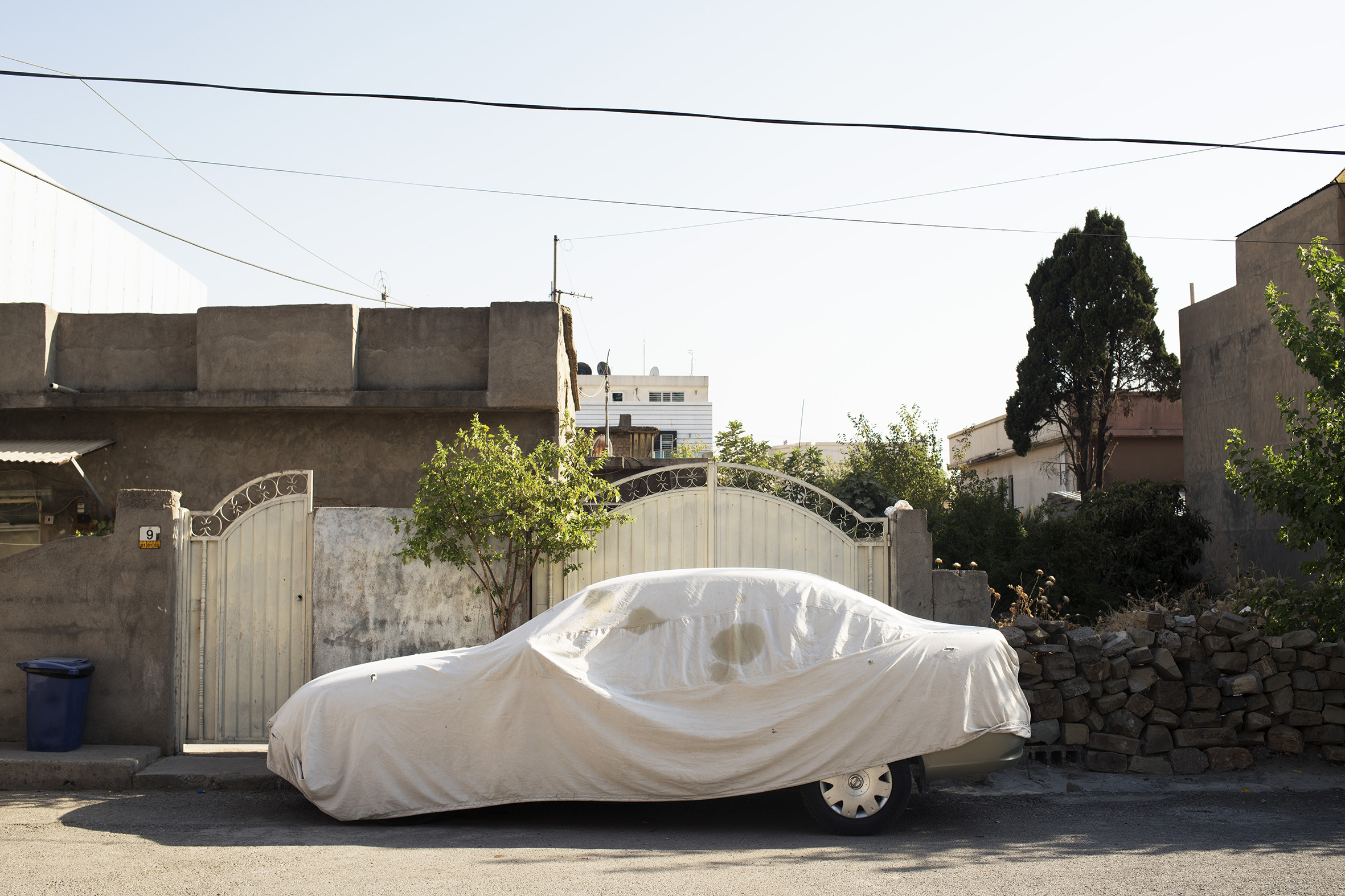
-
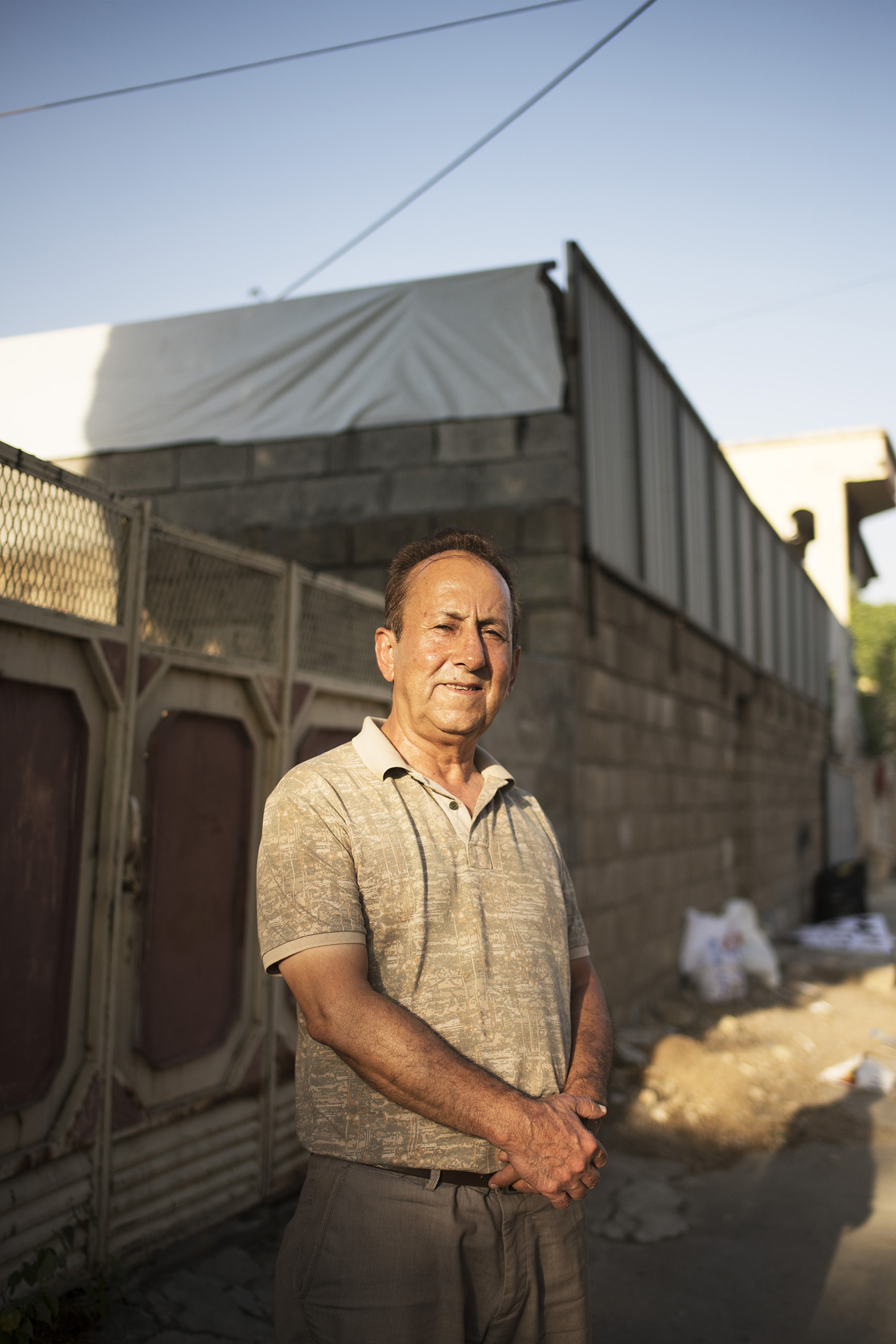
-
« My name is Jharad Ahmad Karam, I am 51 years old. I am working in a building construction company in Suleimani. I was born there. I am not married.
I have spent 14 years of my life in Iran. I arrived there in 1987, then came back to Suleimani in 1991. Then, I left again until 2007. I was a Peshmerga soldier with the UK and I couldn’t go back to Iraq. I spent those years fighting in the mountains. Saddam Hussein’s regime was controlling all of Iraq, even Kurdistan. The whole country was a dictatorship; we had no freedom of expression and no freedom in general. That’s why I choose to go to the mountains and join the Peshmerga. I have been fighting for five years.
I have been fighting for my country, I had hoped things would get better and we could have a beautiful life here. Kurdistan is a very nice region, where you can enjoy life, enjoy nature, but the problems are in the system. The system fails people by affecting every part of your daily life and pushes you into leaving.
The political and social systems in Kurdistan work like the mafia. The people with power are trying to get everything for themselves and give nothing to the people. They are trading with their rights and freedom. The ones who can afford it will have a good place in all stages of life. The other ones will not be able to have anything.
The hopes for the future are so thin, many people who have graduated are jobless because they don’t have a good social position or relations. ( contacts in the industry?)
I surprise myself sometimes by thinking that before, the Iraqi regime was a dictatorship, yes, but at least we had a system. If you were working you had a salary every month. If you had a problem you had justice. In Kurdistan we have no money and no justice, what can you do with your life without these things?I have been thinking about leaving for Europe since I was 16, and I never stopped thinking about it. I tried three times but I never succeeded. I tried to go from Iran, and walk across the northern border to Turkey, but the police caught me. I still want to leave. In Europe, I hope I can find freedom and human rights. Over there, they respect human beings. I am just waiting for the best time to go.
Three of my brothers are in Europe, one in Greece and two in the UK. I know one of them has a good situation but it’s very complicated for the other two. I think I can make a difference. I have determination, I want to work, I already have contacts and plans in different countries. I know you’re not guaranteed to get the life of your dreams there, but one lucky person succeeding, out of three is already a better chance than staying here with no hope. » -
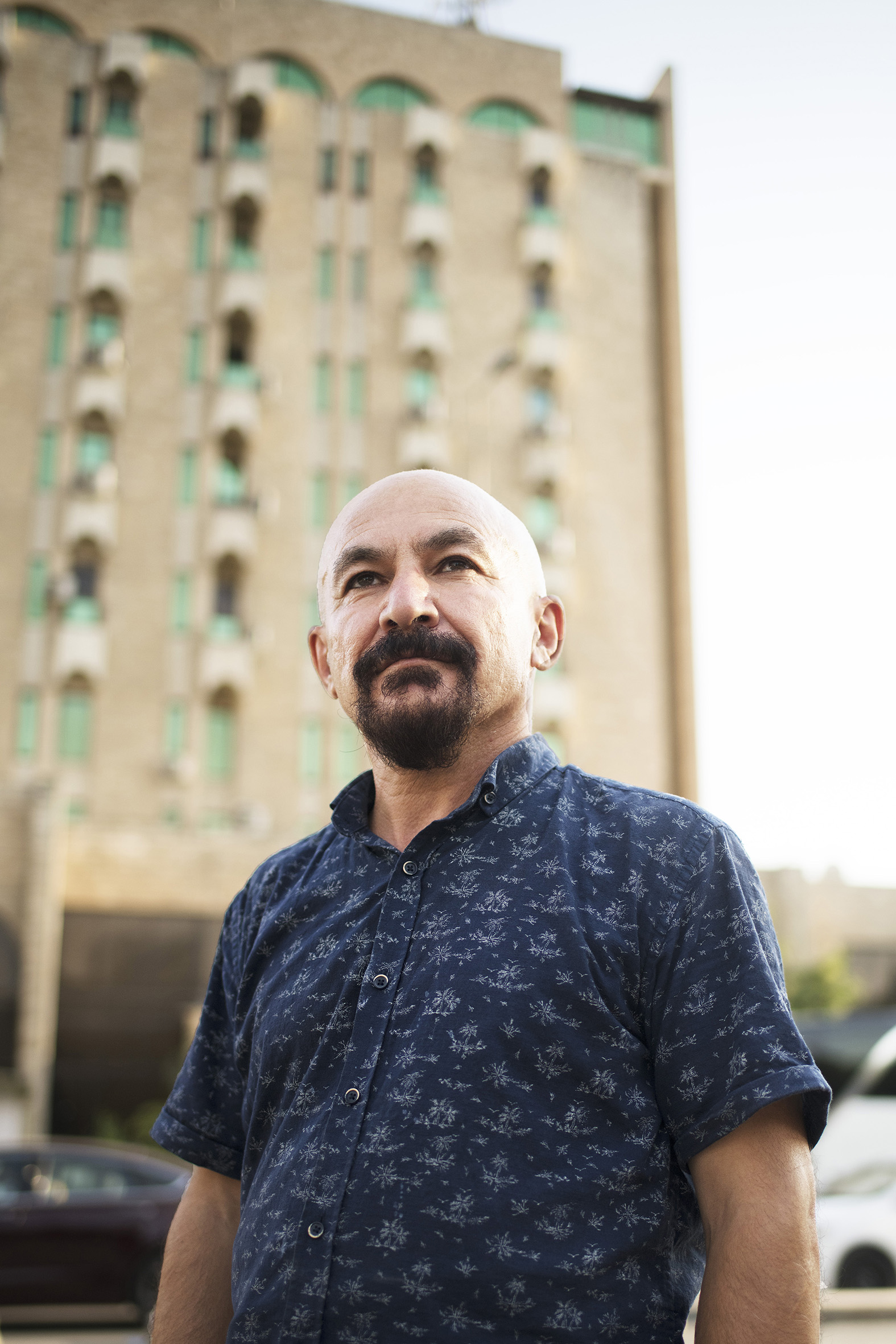
-
« My name is Shalaw. I was born in Suleimani, in Iraqi Kurdistan and I have spent all my life here. I graduated from information College, so I studied TV journalism, information, radio. I am married and I have two children.
I used to work as a journalist from 1991 to 2014 and now I have a small open book shop near the Bazar in the city centre. Before, when the various conflicts happened in Iraq, we had a lot of work as journalists but afterwards, it became very complicated. We could still find subjects to talk about but if you want to work here as a journalist, you need to be a member of one of the political parties which are running the country and follow their ideas. If you’re not then you will not be able to work. There is no freelance journalism. I can’t write freely. This is the reason why I stopped doing journalism as my main job. I am not considering the political and societal subjects anymore because of this pressure. I am still doing a bit of journalism, but only about cultural or artistic subjects. I am a part of a small program in a university private radio station but it’s only talking about culture and art. I publish a book every two years, it’s enough for me.
Suleimani city is like my mother and Kurdistan is my love, I never wanted to leave. The people are good, my friends are here, I know everything about this place. I never thought about leaving Kurdistan. I like my country, it’s here that I feel at home.
My brother has been in England for 20 years, he comes back every two years to see us. He left the country to work because here, in Iraqi Kurdistan, the economy is very bad so it’s difficult to get a good job. Personally, I don’t mind, even if make one dollar a day it’s enough for me to be happy to stay. I used to work as a journalist, so I am aware of the reality that people who have left are facing. I know if you go to Europe, you will not be a normal person, you will be a refugee and won’t be considered as a human; you will be a second class citizen.
But even if I want to stay, I am very objective about my country. There is no political system here in Kurdistan, it’s not politics, it’s just trading. Influential people are buying the right to be politicians, so many civil rights are lost. Our political system works like a mafia. » -
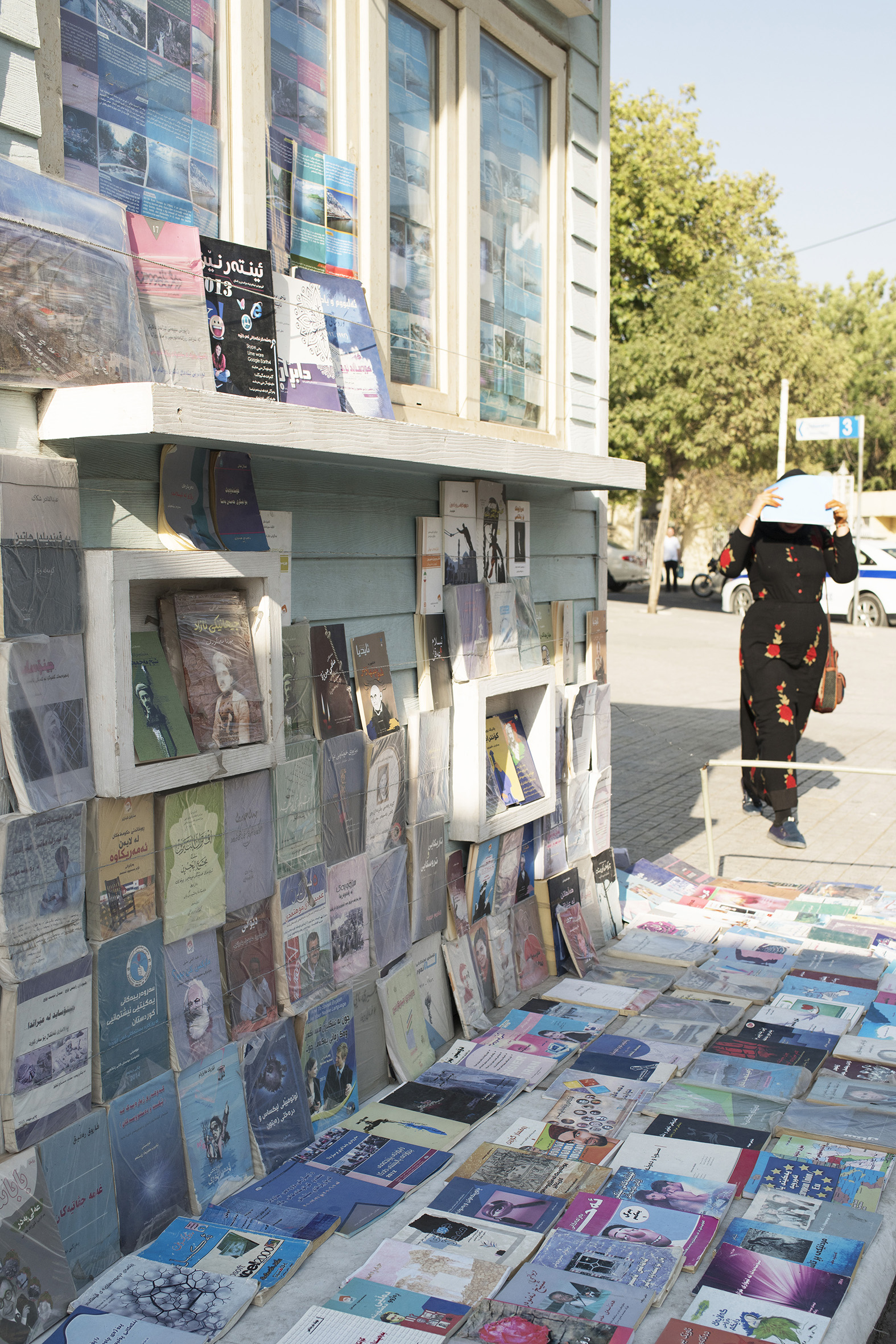
-
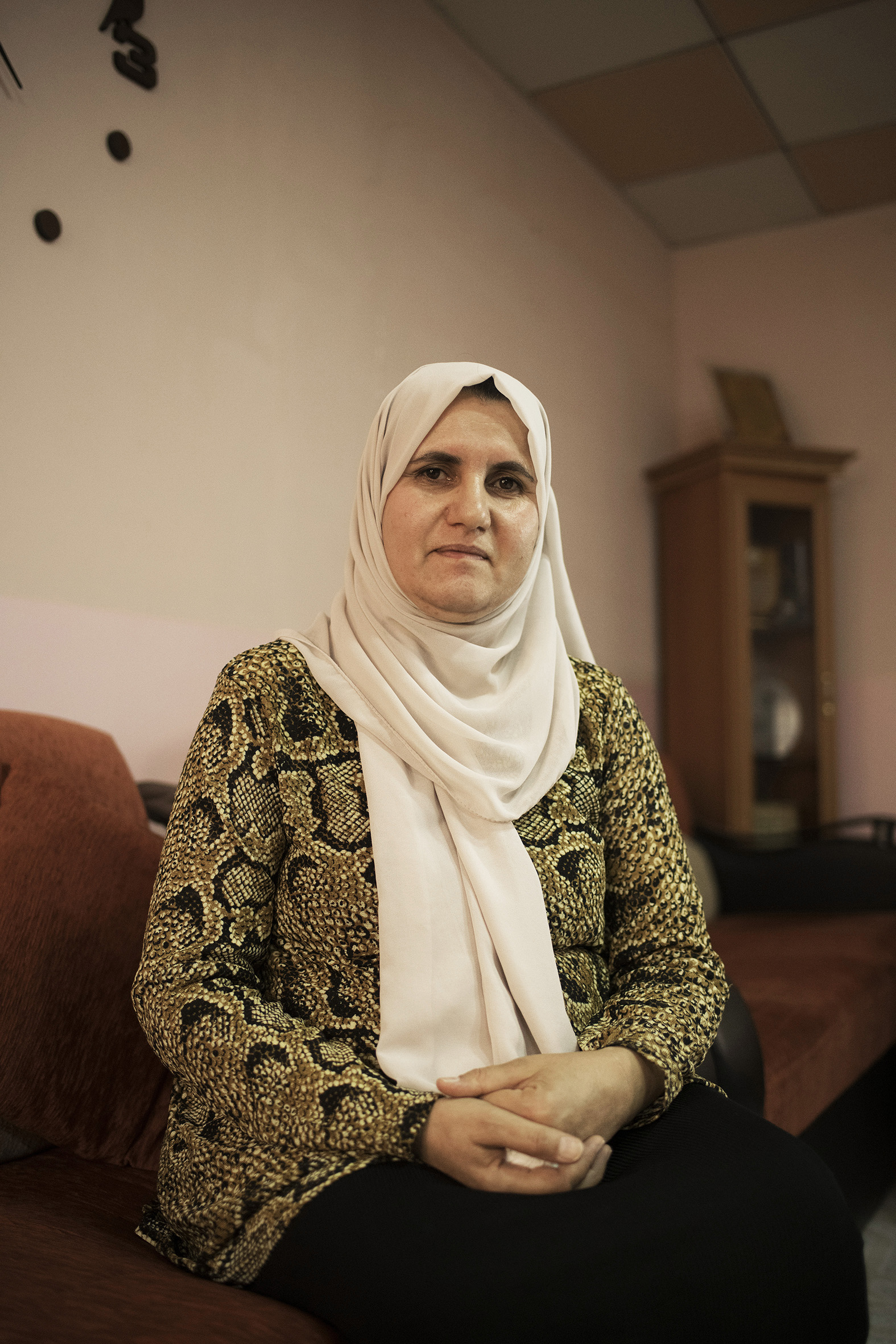
-
« My name is Ashti Jamil Shwkr, I am married and I have 5 children; 4 boys and a girl. I studied until high school but I didn’t finish. I am a journalist working on subjects concerning women, and I am a member of a journalist syndicate in Halabja. Since 2000, I have worked as a journalist for magazines and newspapers, doing translation and management in an organization for the construction of the future of women in Kurdistan.
Adila Khan, a woman, was the first mayor of Halabja and Sharazur (both cities in South Kurdistan). Until now we have only had male mayors. The new mayor in Halabja is currently a woman, this is very symbolic for me, showing that the interests and the consideration of women in politics has evolved a lot in Halabja and Kurdistan.
However, there are many problems in the political field of Iraqi Kurdistan. The political area doesn’t concern only the government, politics is mixed in with daily life. The different political parties possess the shops and the public places, nothing is in the hands of poor people. If you want to have the choice, you need to be in a political party. Especially in Halabja, we can feel it, the corruption in politics doesn’t allow the city to develop. The political system in all our country is very bad. Politics should serve society but in Iraqi Kurdistan, politics is made to favour the interests of the political authorities only. The people understand this and don’t believe in politics anymore. They don’t vote and the only people who still do, have been paid for it or forced to one way or another.
The economic system is also an area of the political field as the government is paying most of the salaries. We never know if we will have the money we have been working for. This is very complicated when you have a family, you never know if you will have the money to take care of your children.
When I was young, I was a journalist, but you know, it’s complicated to be a journalist here because you cannot report everything you want if you don’t have the support. I worked in a magazine for a while but when the Coronavirus epidemic came, along with it a financial crisis, the government stopped paying salaries, so we stopped it.
I left this country twice before, both times because of wars. The houses and the cities were destroyed by the regime of Saddam Hussein, so I had to go with my family to Iran as refugees. I never wanted to leave. I am Kurdish, this country is where I belong but I understand why people are leaving; they are looking for human consideration. One of my sons tried to leave to go abroad many times, hoping to build a better life for his family with decent conditions.»
-
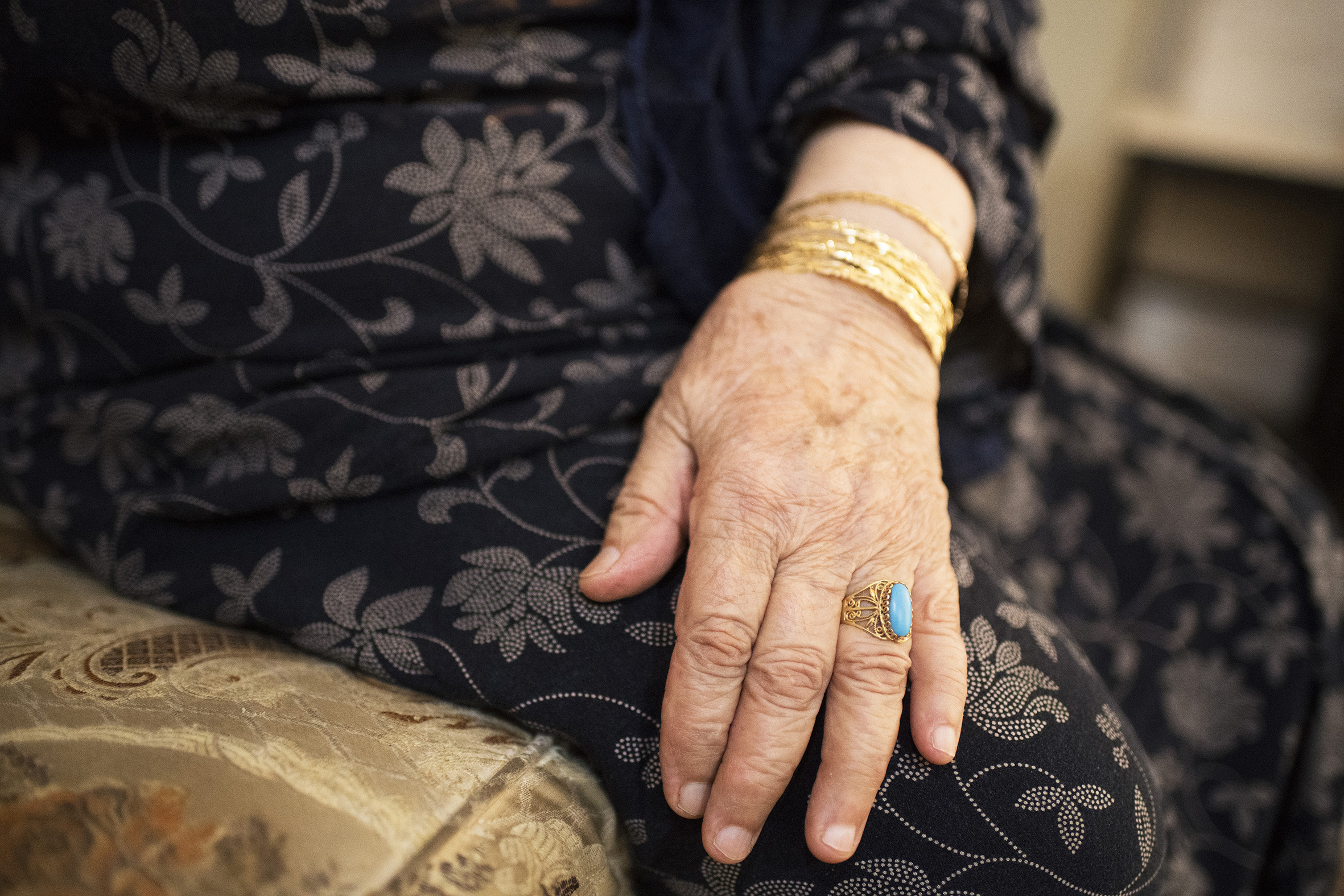
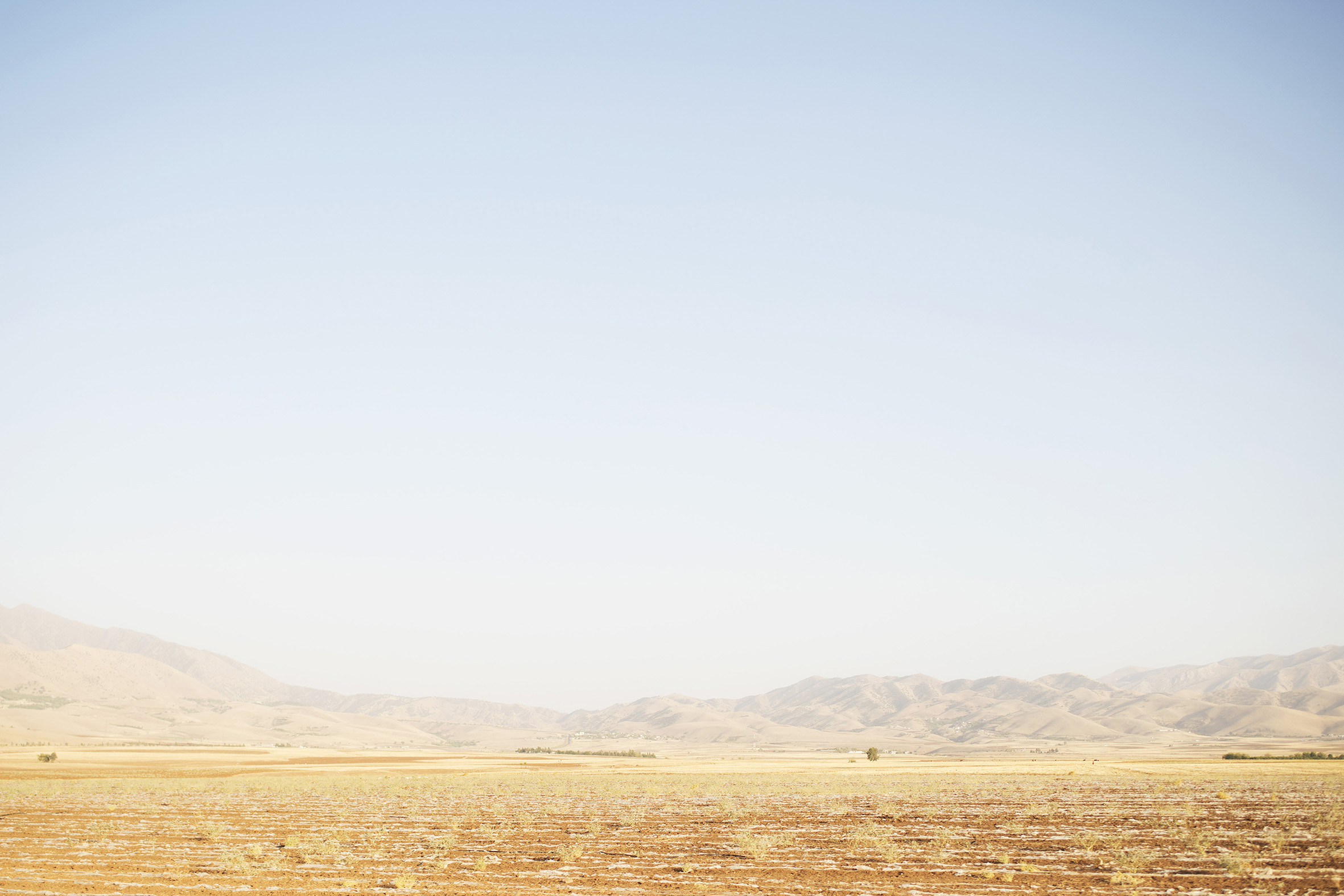
-
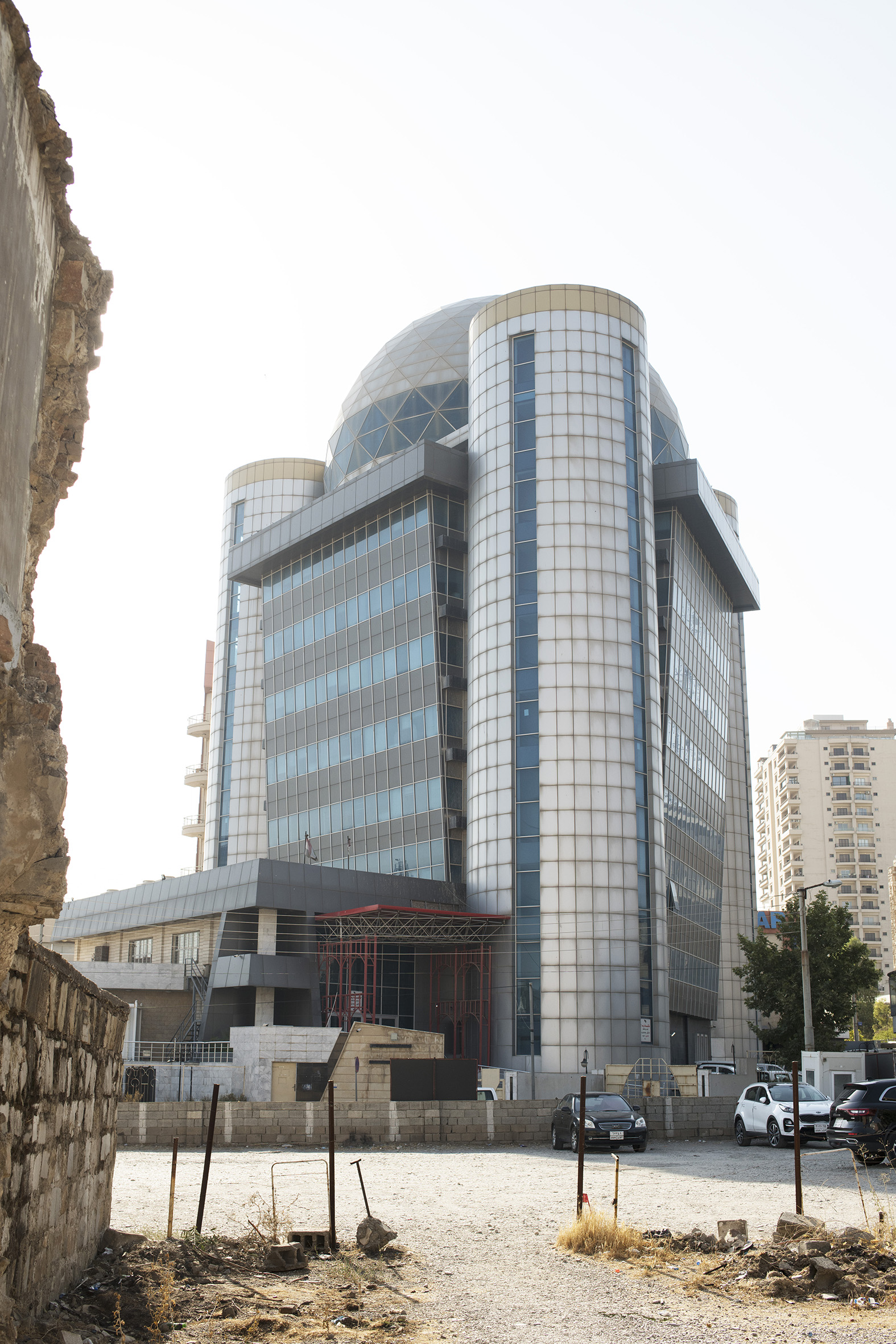
-
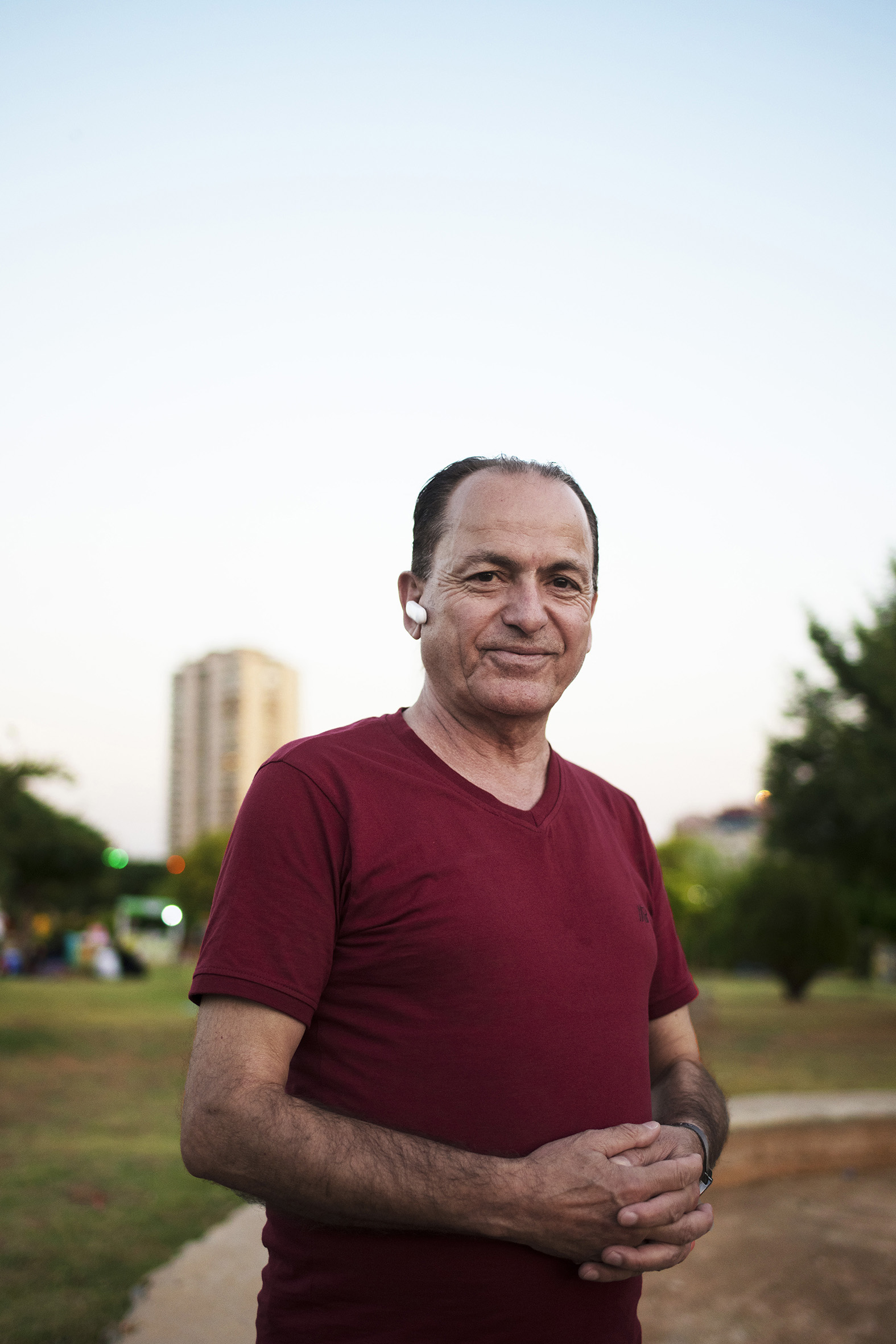
-
« My name is Rebwar, I am 58 years old. I am from Suleimani, a city of Iraqi Kurdistan. I was born here.
I left to go to Sweden in 1999 and I came back in 2011. All my family are in Sweden, my four children are there but I came back to Kurdistan for my mother because she is getting very old. In 1999, I left illegally; I knew someone who sold me the passport of a man from Baghdad with some travel documents. I got a plane to Germany easily. When I took the plane with my fake passport, I dressed very well in a suit, a briefcase and I didn’t speak at the border control, so they didn’t seem to doubt me. I am lucky because my face does not look much like someone from the Middle East, most of the people probably thought I was European. When I arrived in Germany, some of my relatives came to pick me up at the airport so I looked just like a normal traveller. For 7 years I was in Sweden illegally but I eventually got my residence papers in 2006.
I am conscious of how lucky I am to have these papers, even if I come back to Kurdistan I can still travel and I visit my children there every year, for a month.
In Iraqi Kurdistan, there is no justice. Before I left, I used to be an English teacher, but I didn’t belong to any political party. I was pressured a lot into becoming a part of one but I refused because I didn’t share their beliefs or ideas so at some point it became impossible for me to work. These political parties control all the areas of daily life and if you’re not following their expectations, you cannot do anything. If you don’t belong to a party, you don’t have any rights.
In Sweden, when I arrived I starting working as a taxi driver, then I started to work in politics, first with some organizations helping Iraqi refugees, then with the ecological and democratic parties.
I have been able to reach the « European dream » that so many people are expecting here. I saw the differences between what you’re expecting before you leave and what’s the reality.
I am very attached to my city Suleimani, I have my mother there, and many friends. I just like to spend my evening playing domino games in the park, enjoying the simple things in life. I love the weather here, the different seasons that you can feel more than anywhere else. Life in Kurdistan could be beautiful, but the system isn’t good. In Sweden, the system is good, but the social relations are complicated when you arrive as a refugee. It’s not that easy to build a new life from nothing. » -
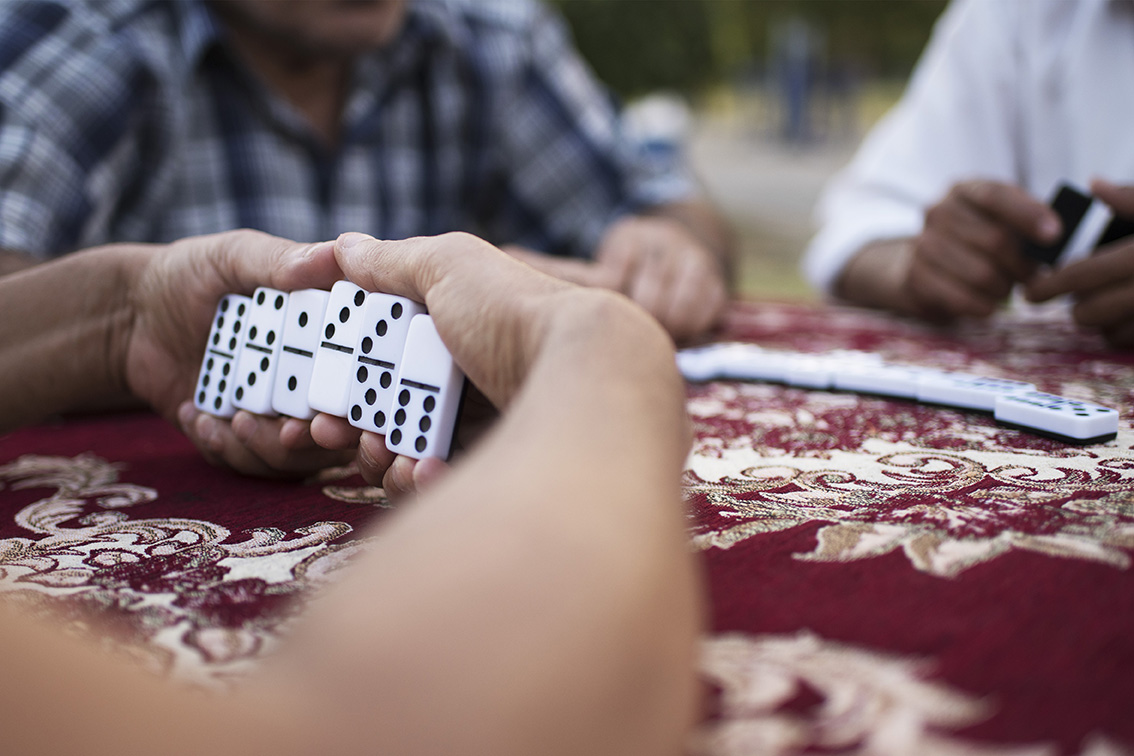
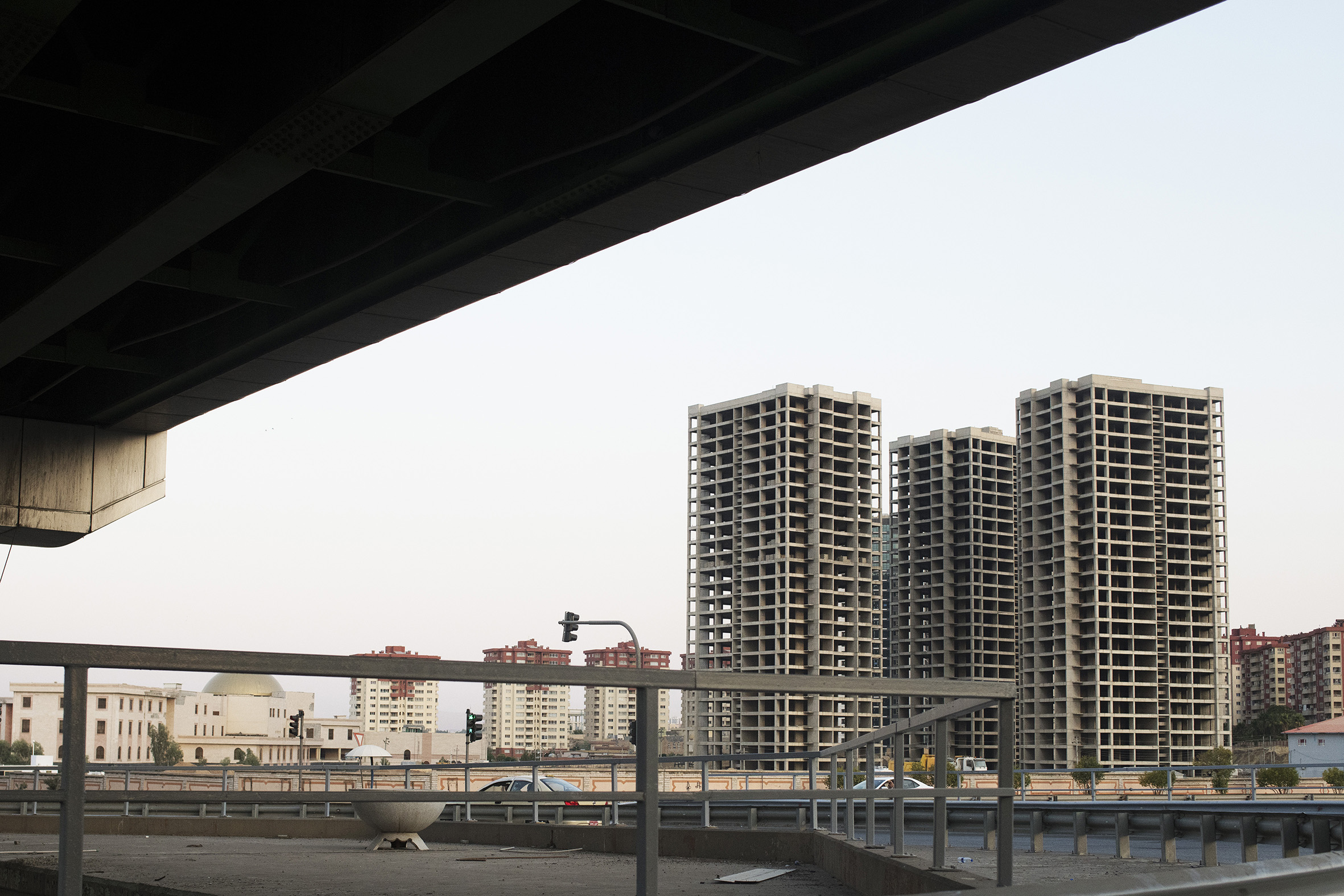
-
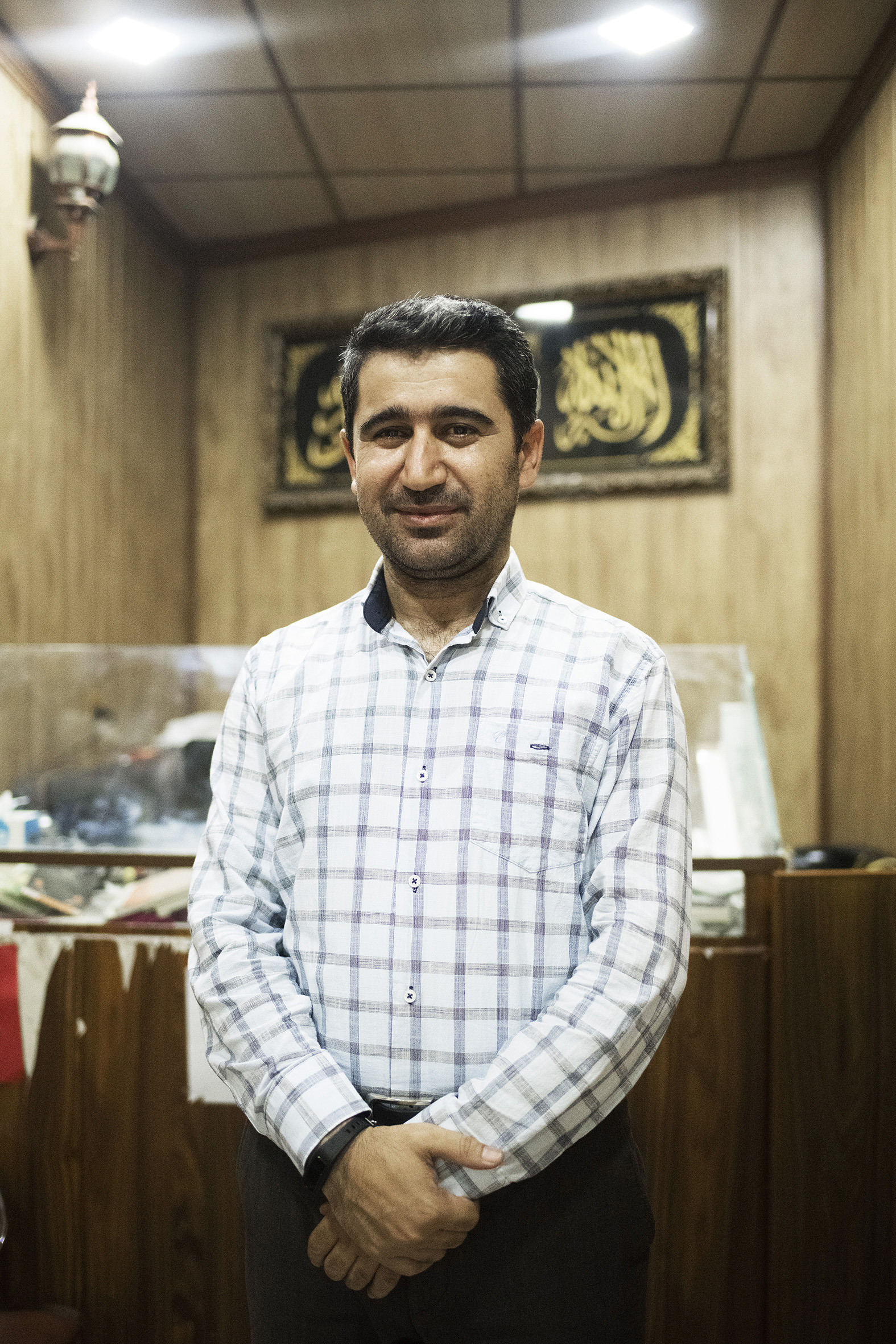
-
« My name is Erfan, I am 43 years old and I am from Halabja in Iraqi Kurdistan. I am married and I have three children. I am an English teacher.
Politics affects every part of life in Kurdistan. If you work in a shop, if you work in the education area, it doesn’t matter what you do, the political world affects you. Most of the people in Iraqi Kurdistan are employees of the government, so their salaries depend on it.
In 2014, ISIS (Daesh) took control of Iraq and Kurdistan up until 2019. At this time, the situation was bad and we had financial problems. The government stopped paying salaries to the people. Then after this, we had a new financial crisis because of COVID-19. The situation didn’t return to normal. Last year, over 12 months, we only received pay for five of those months. This year, we received our salaries every month so far but each month, 21% was missing and we never received any explanation from the government.
As a teacher, I saw many students leave the university because of financial problems.
The fact is that, even if the government pretends to be democratic in Kurdistan, the candidates and the parties are just buying their positions. The government isn’t elected by the people. Sometimes you’re talking with your friends and you see many people voted for a candidate, then when you see the results there are absolutely no votes for the person we all voted for. No one here believes in the government and the democratic system in Kurdistan.
In Kurdistan, we have many problems with electricity and water, the government never fixes them and keeps the taxpayers money for themselves.I was born in 1978, at this time the tensions were high between the Peshmerga and the Iraqi government. In 1981, a war between Iraq and Iran took place which lasted for 8 years. At this time I was a child going to school. Sometimes, the city was bombarded and we had to leave the classes to go to the shelter. In 1988, a chemical attack happened in Halabja and 5000 people were killed. All the people living in Halabja had relatives killed or badly hurt at this time.
In 1991, the Kurdish people started to demonstrate against Saddam Hussein’s regime, it was a complicated time. After that, the Kurdish government was created in 1992. We thought things would get better but once we eventually got some more freedom, an internal war started between the different factions in Kurdistan, the PUK and PDK (1993-1997). Since then, our country has continually been in a bad situation.
During the inner war in Kurdistan, a lot of young people left the country. After this time, the situation got better. Financially the country was fine, people could find work, the government was creating a lot of employment. But now, as a teacher, I see students who graduated as teachers back in 2012, who have never found a job with the ministry of education because the government isn’t supporting the area anymore. There is no work. That’s one of the reasons why people want to leave. They think in Europe they will be able to work because they are young, they have the qualifications, they want to do something with their lives.
Before the people used to leave because they were looking for safety, now they are leaving for economical and ideological reasons because they want to have a life, they want to have rights and be respected. » -
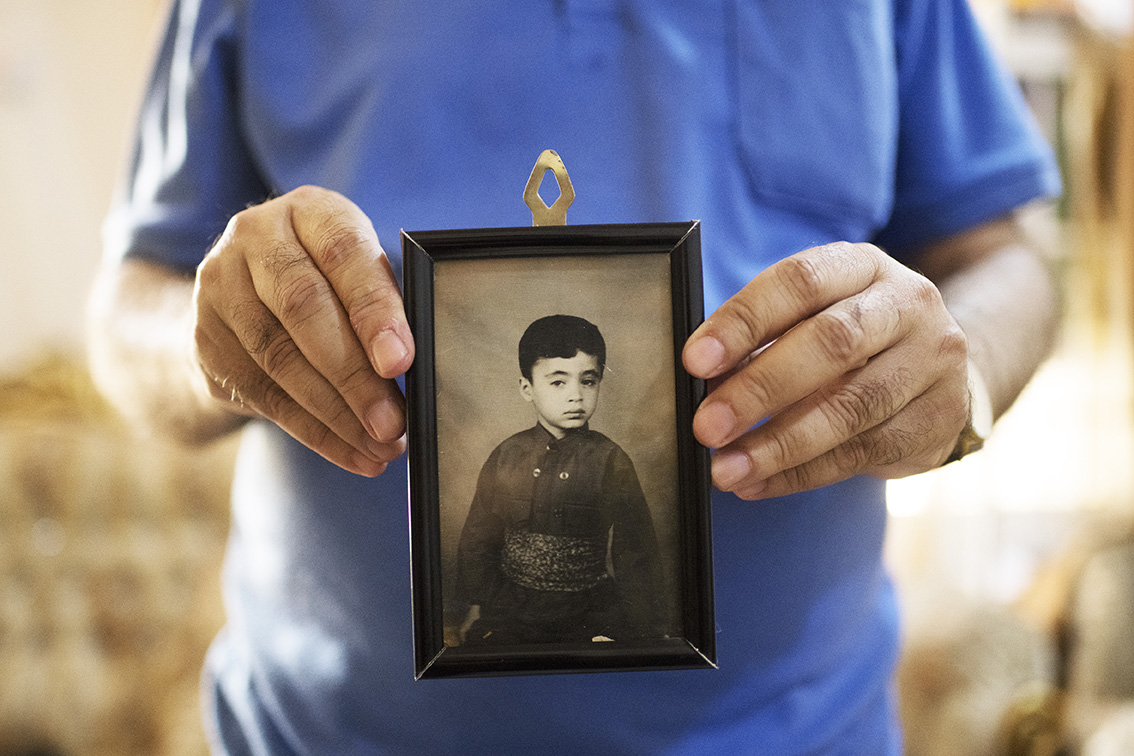
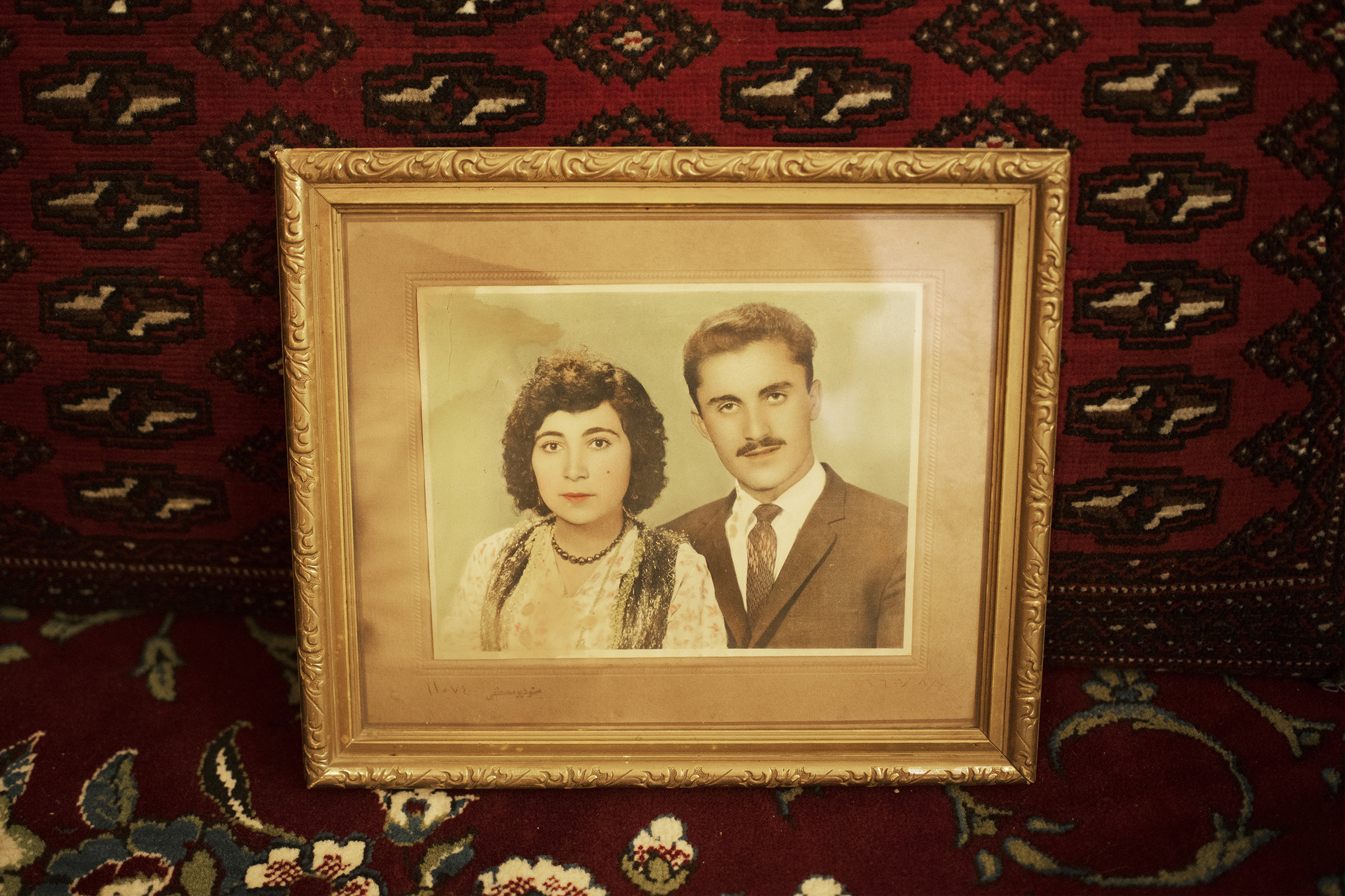
-
